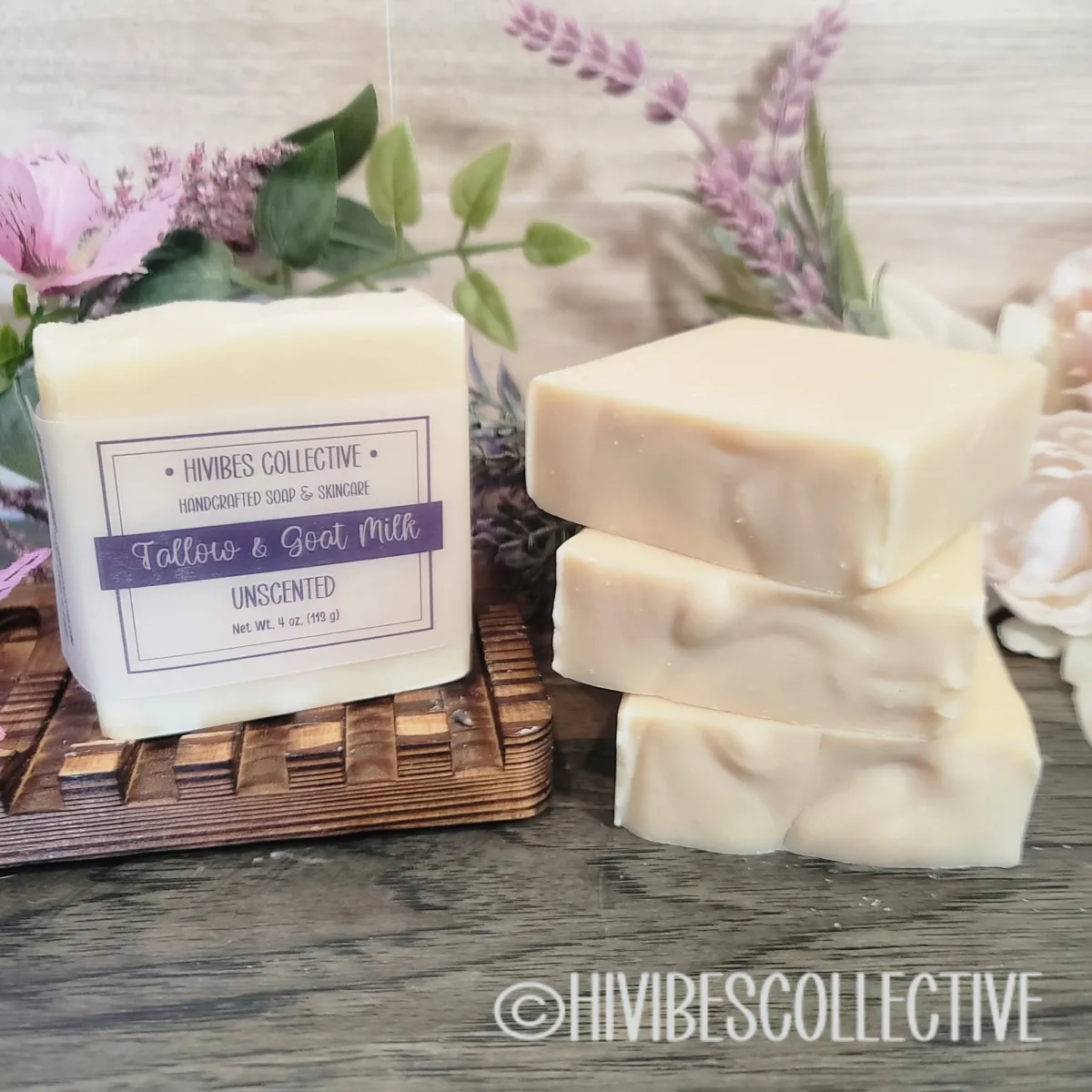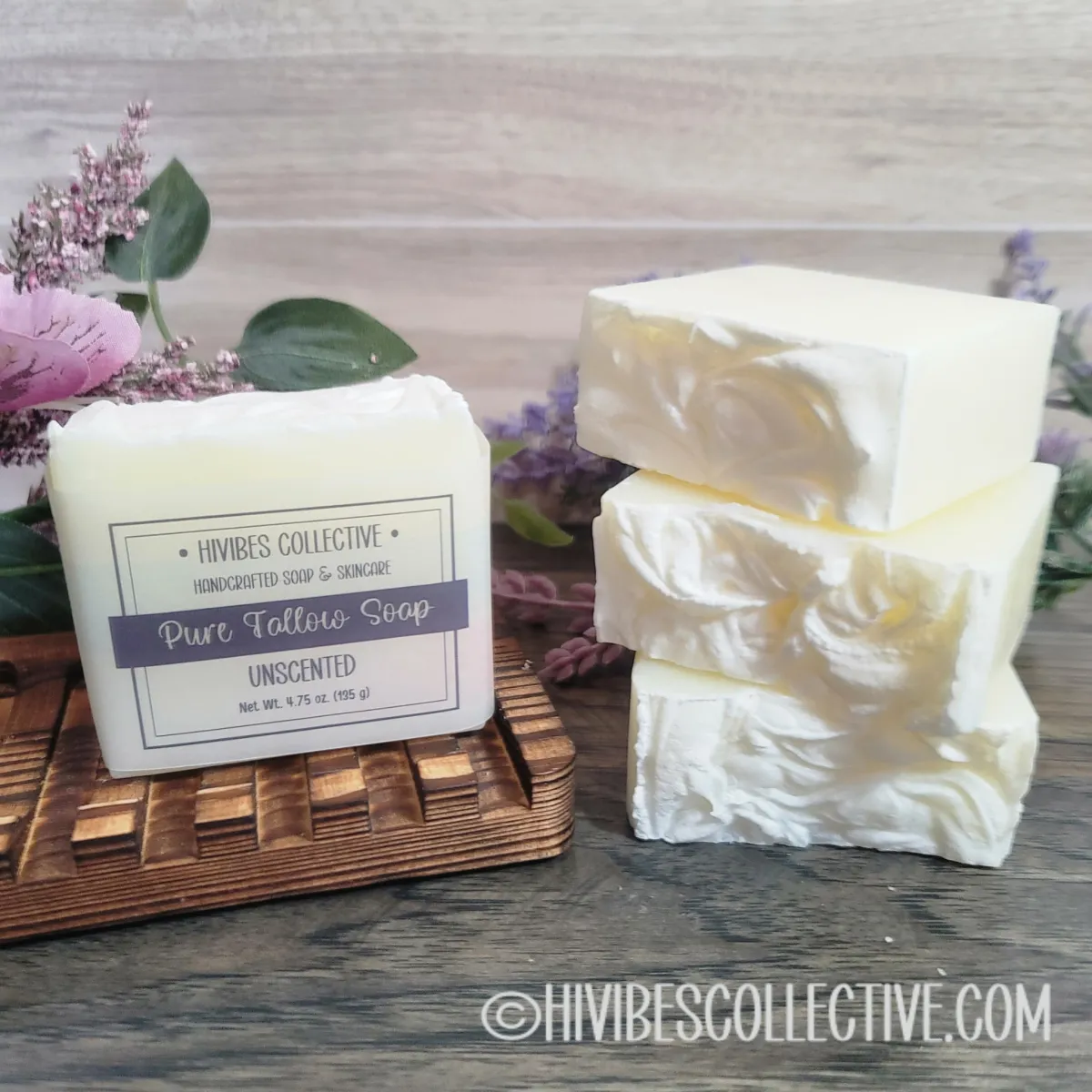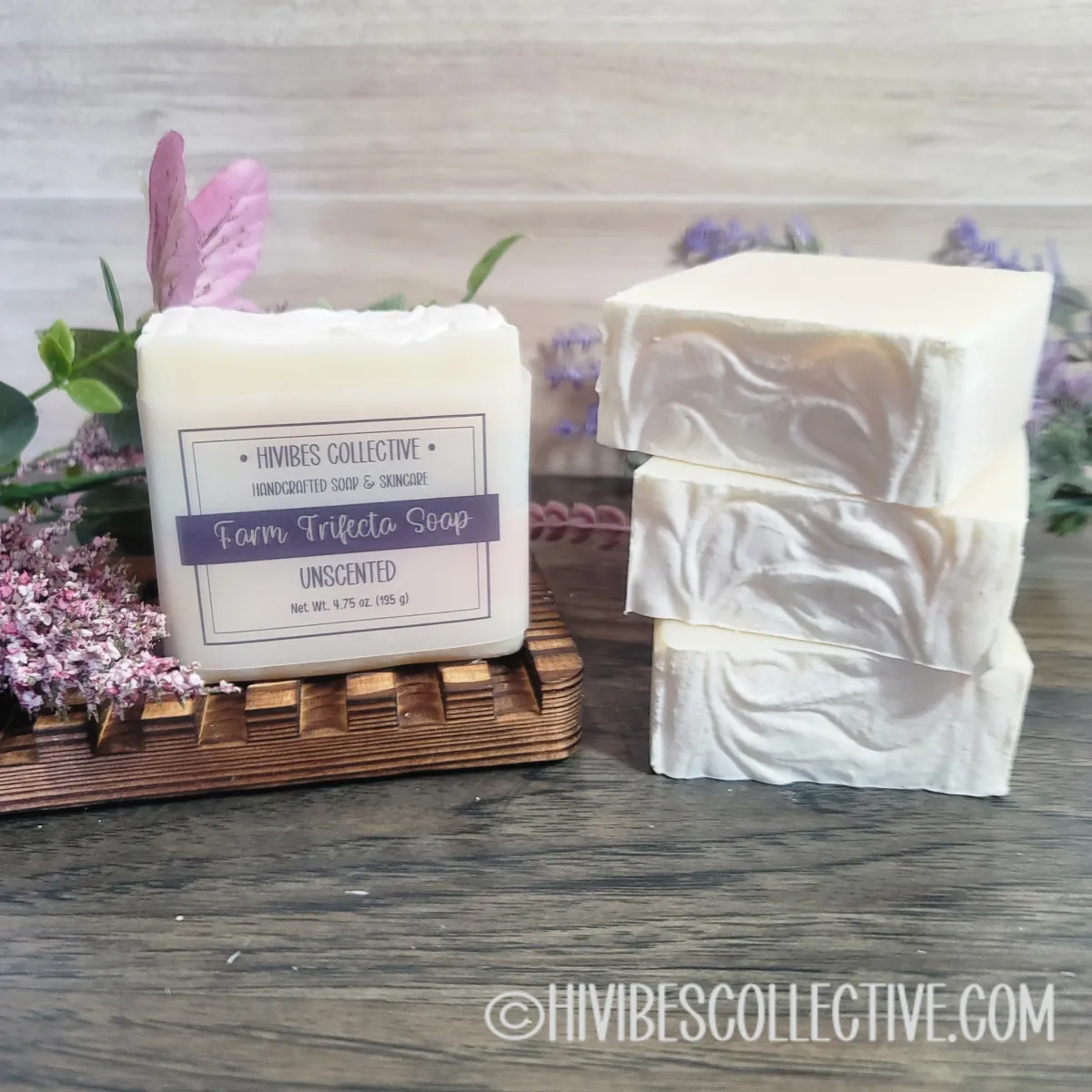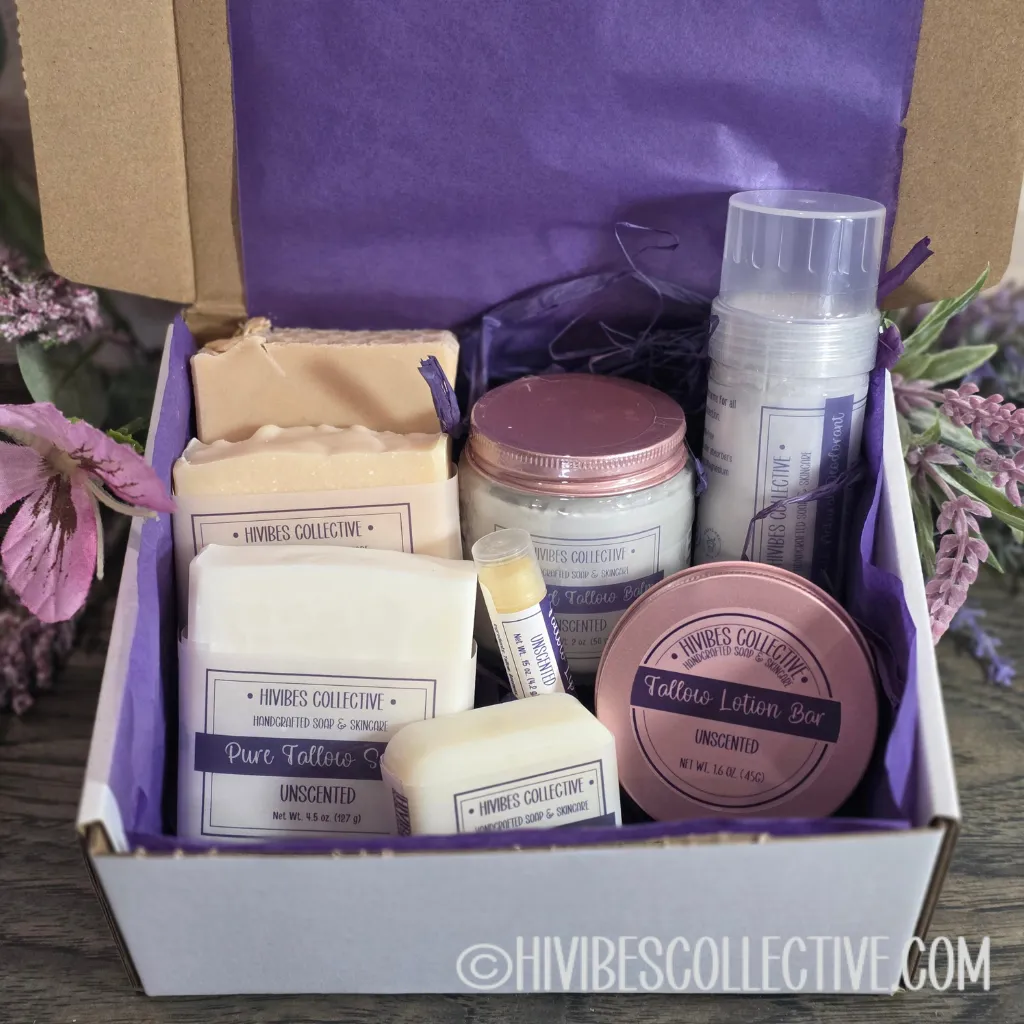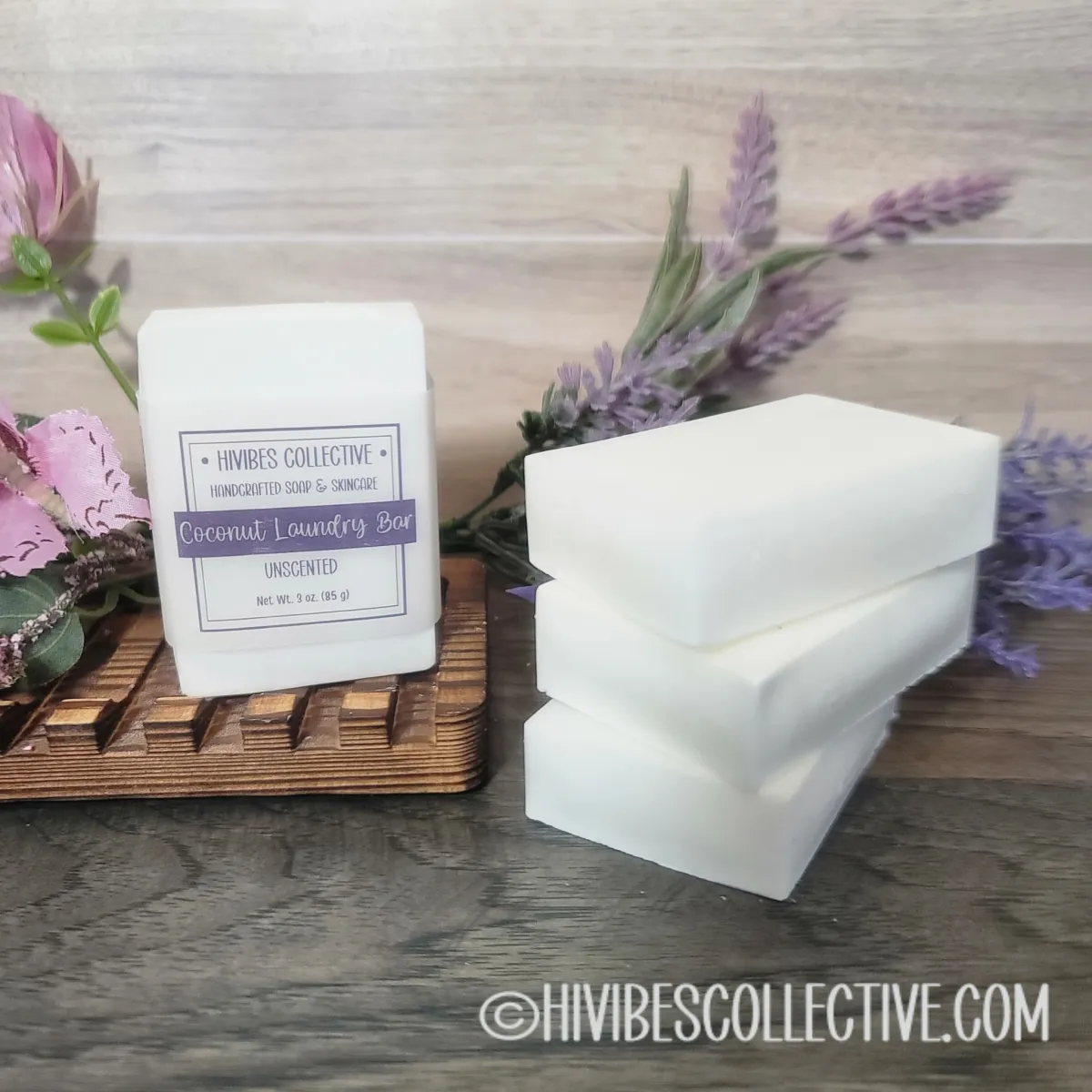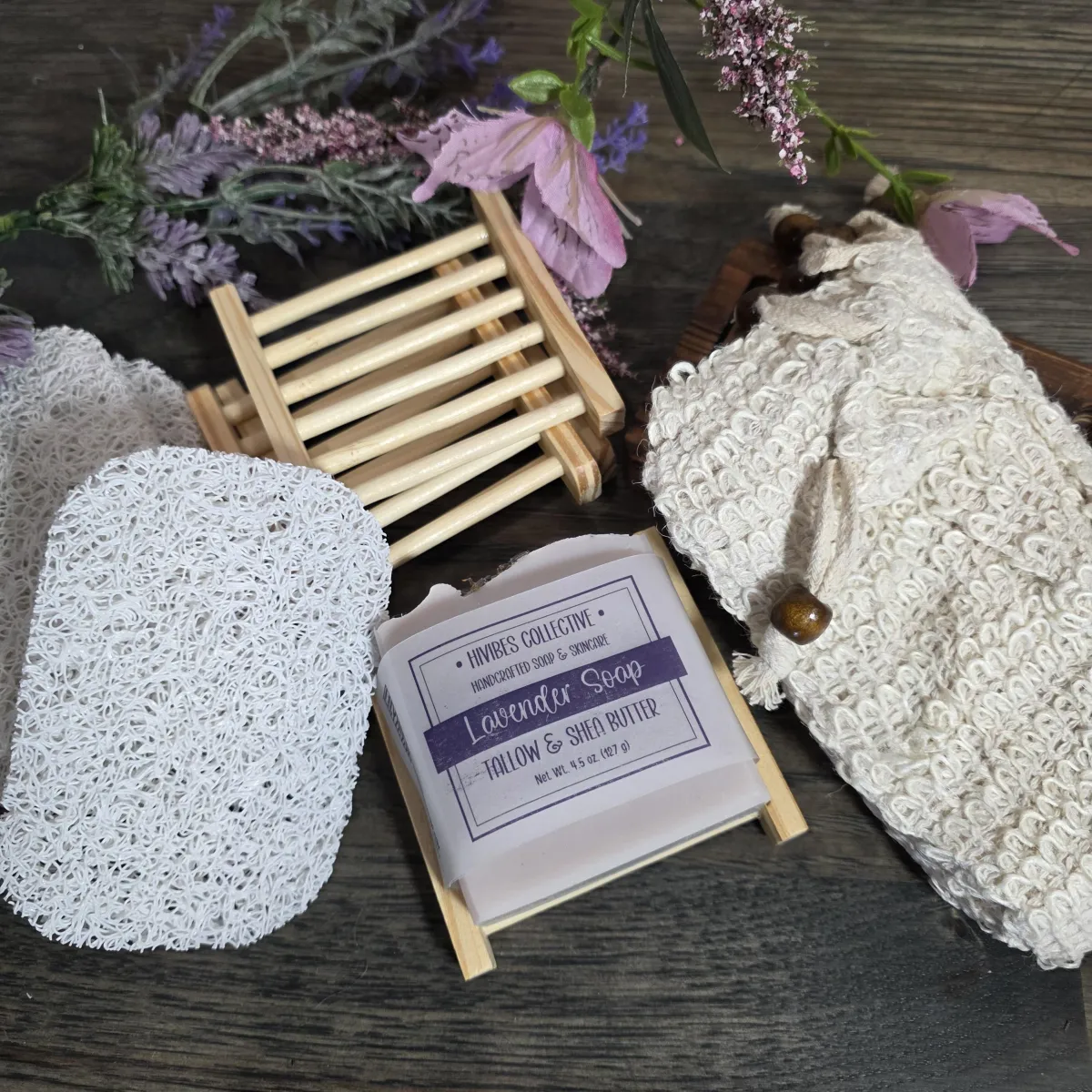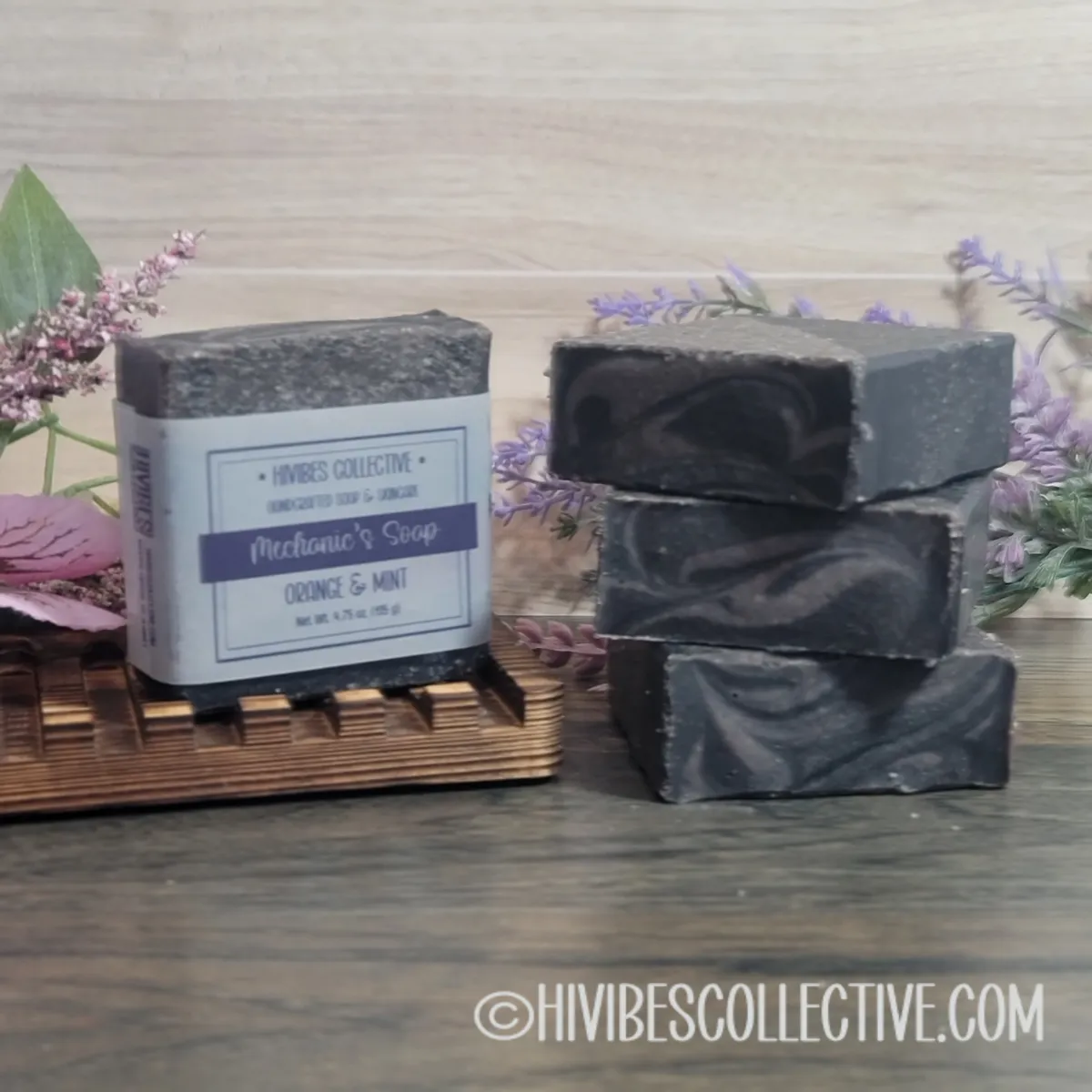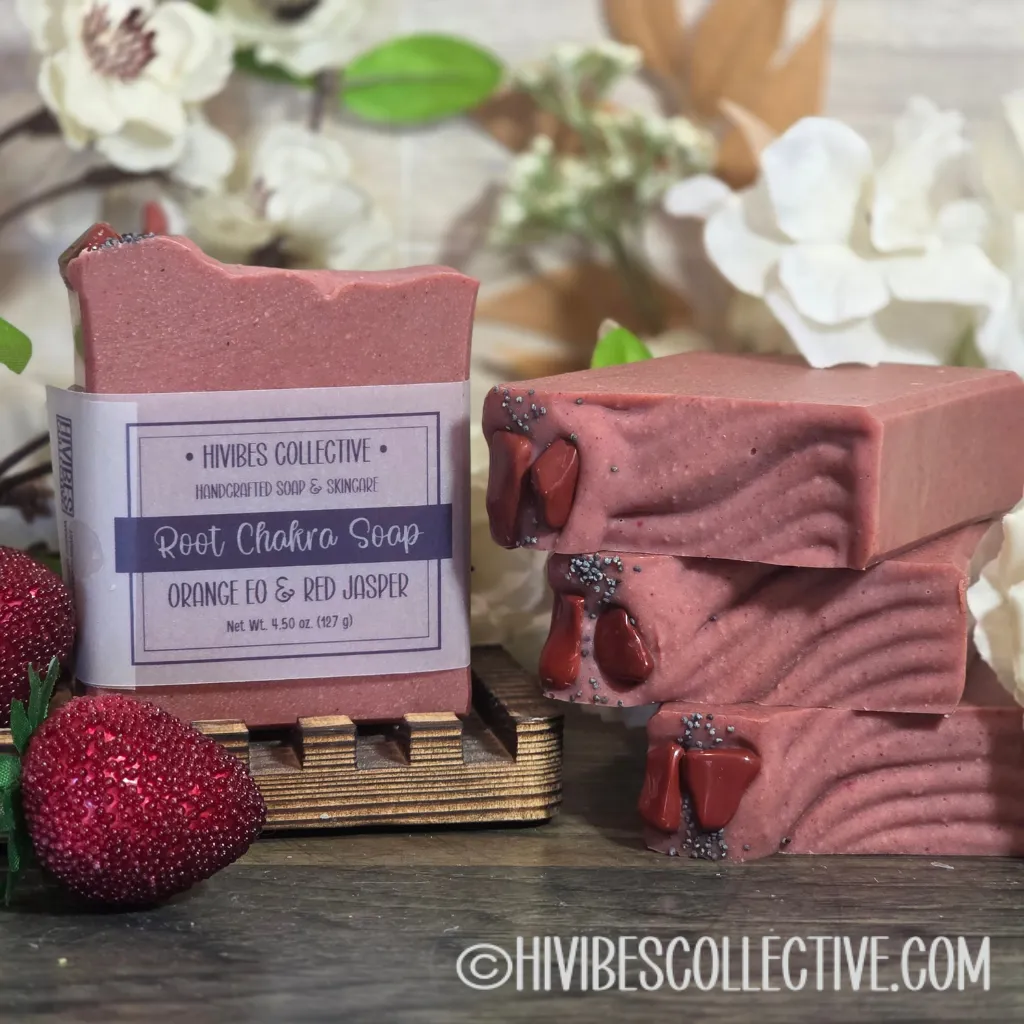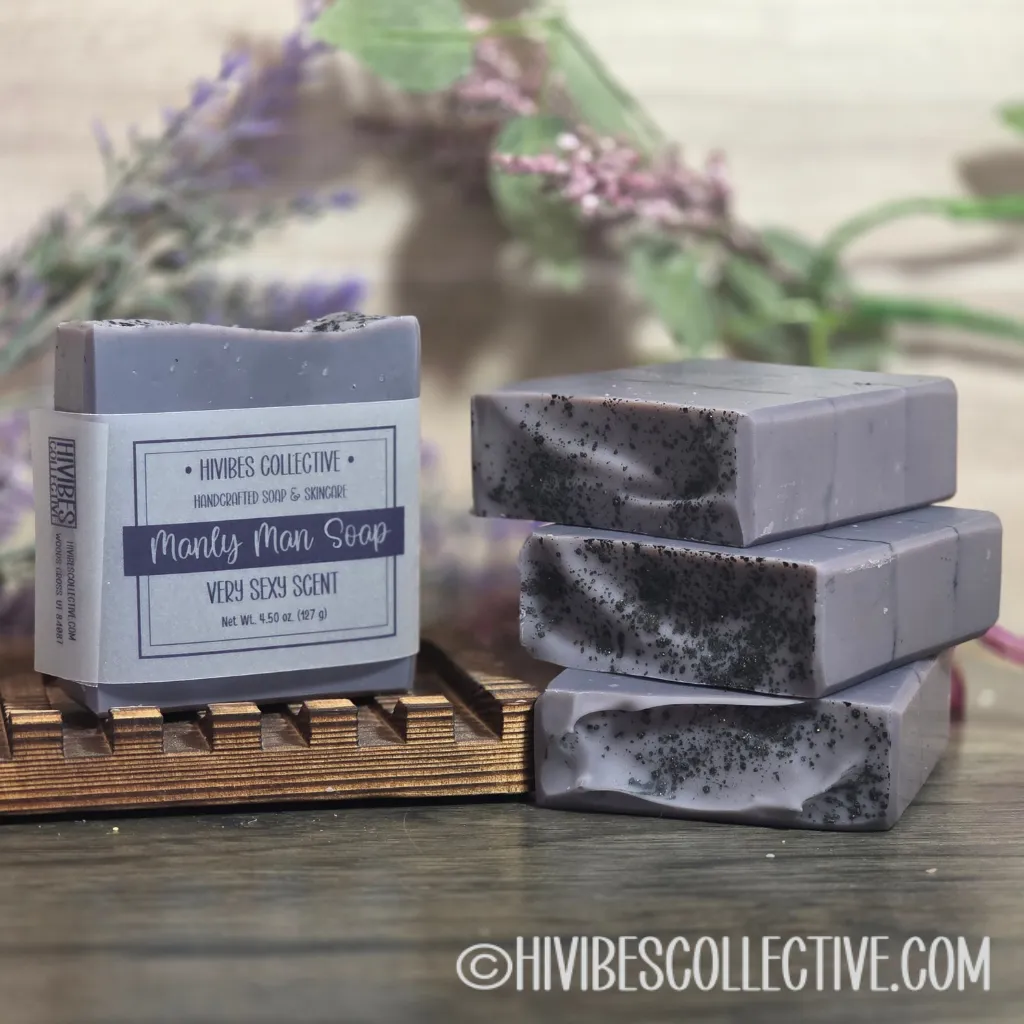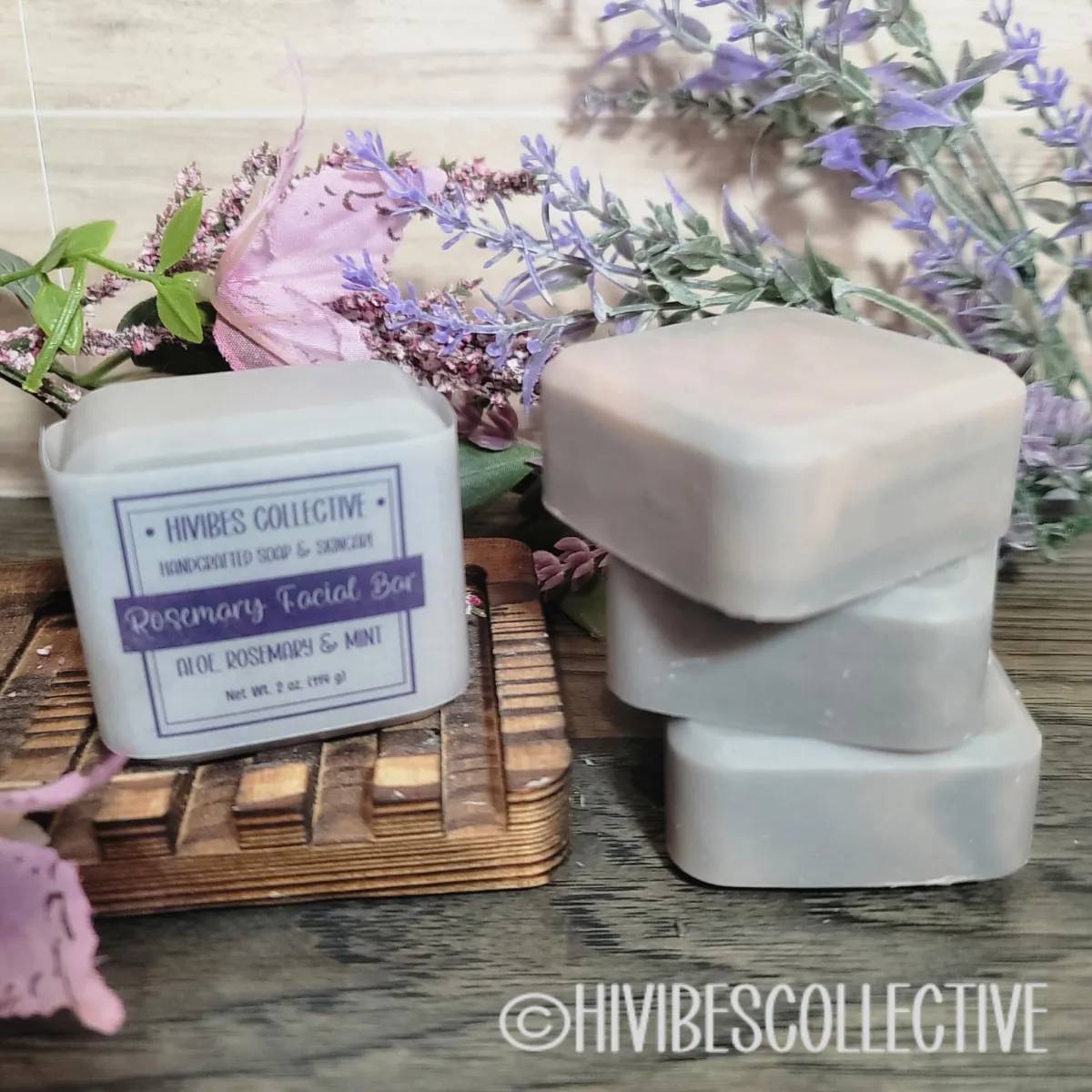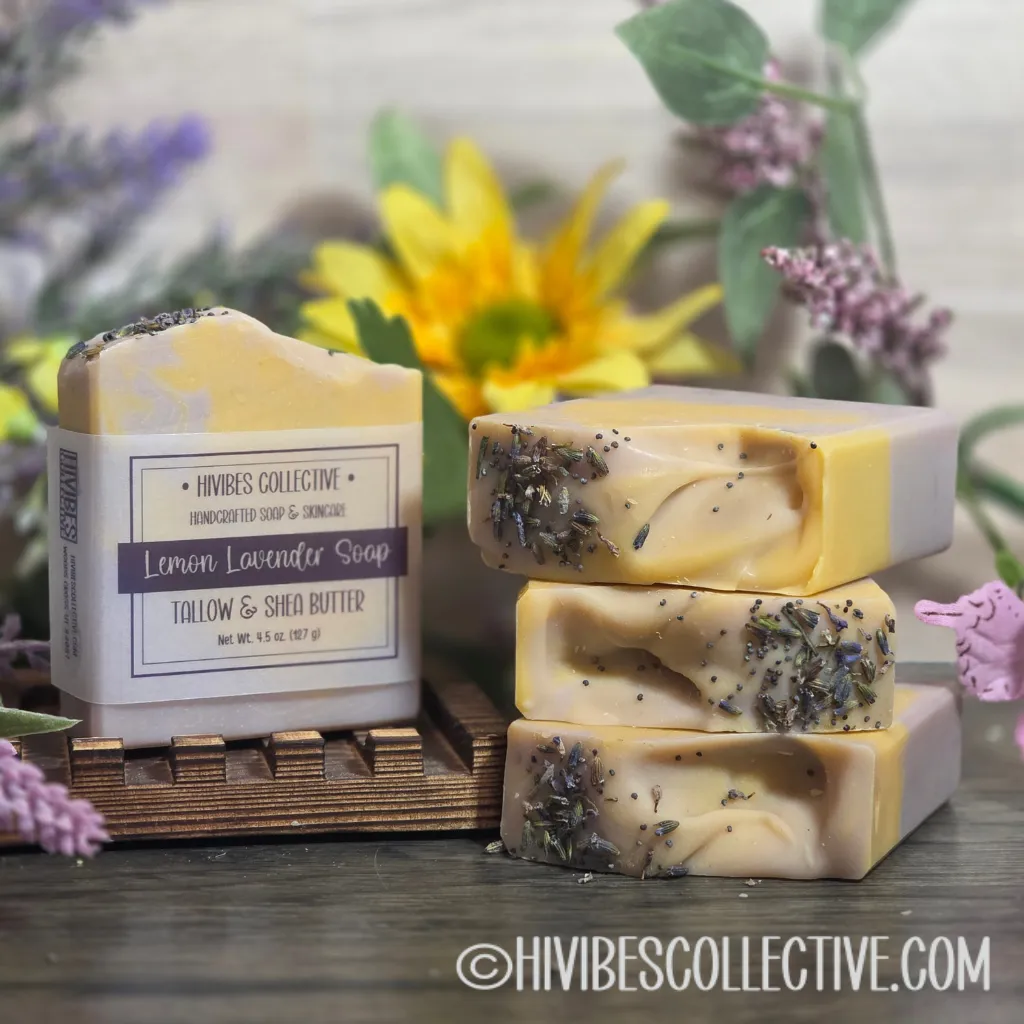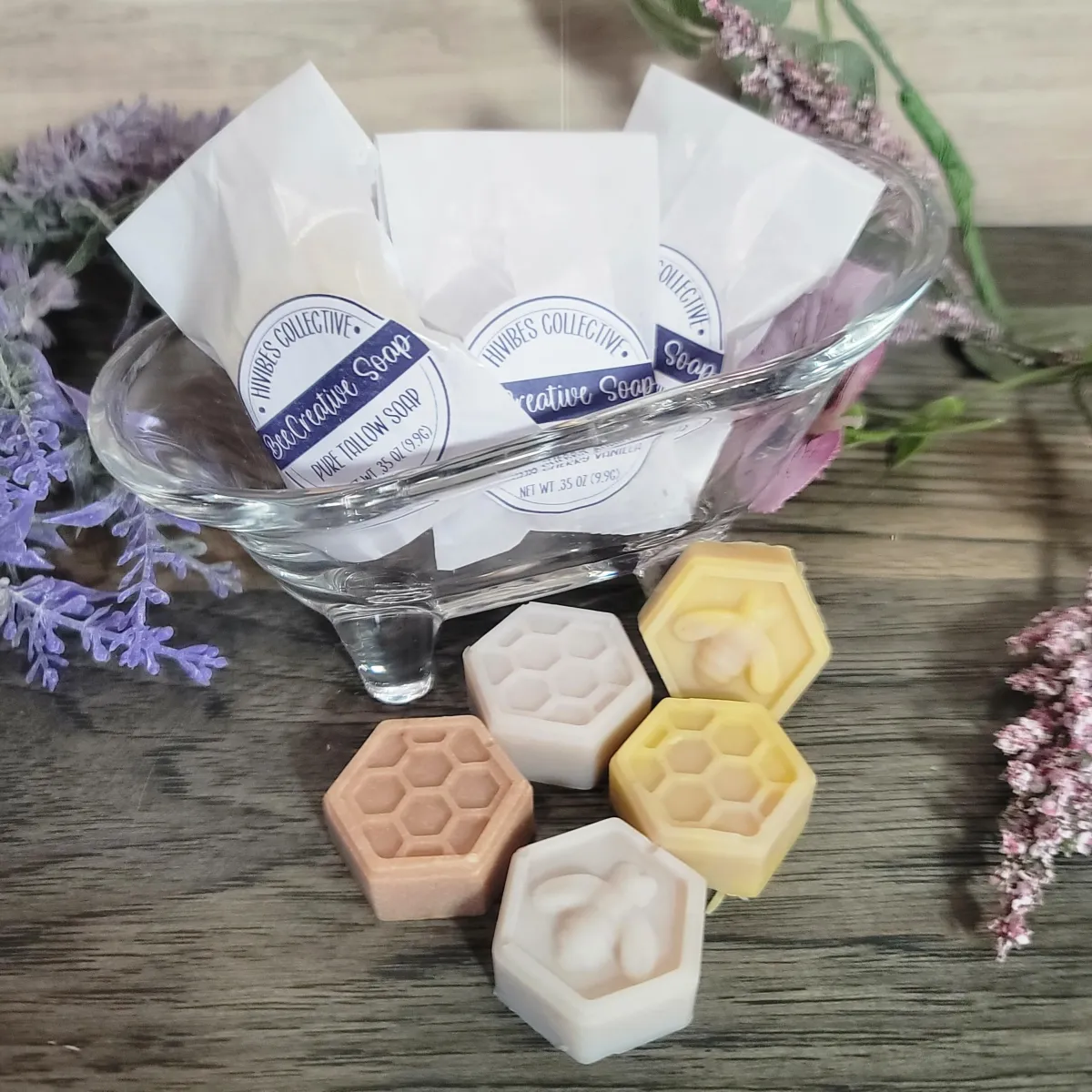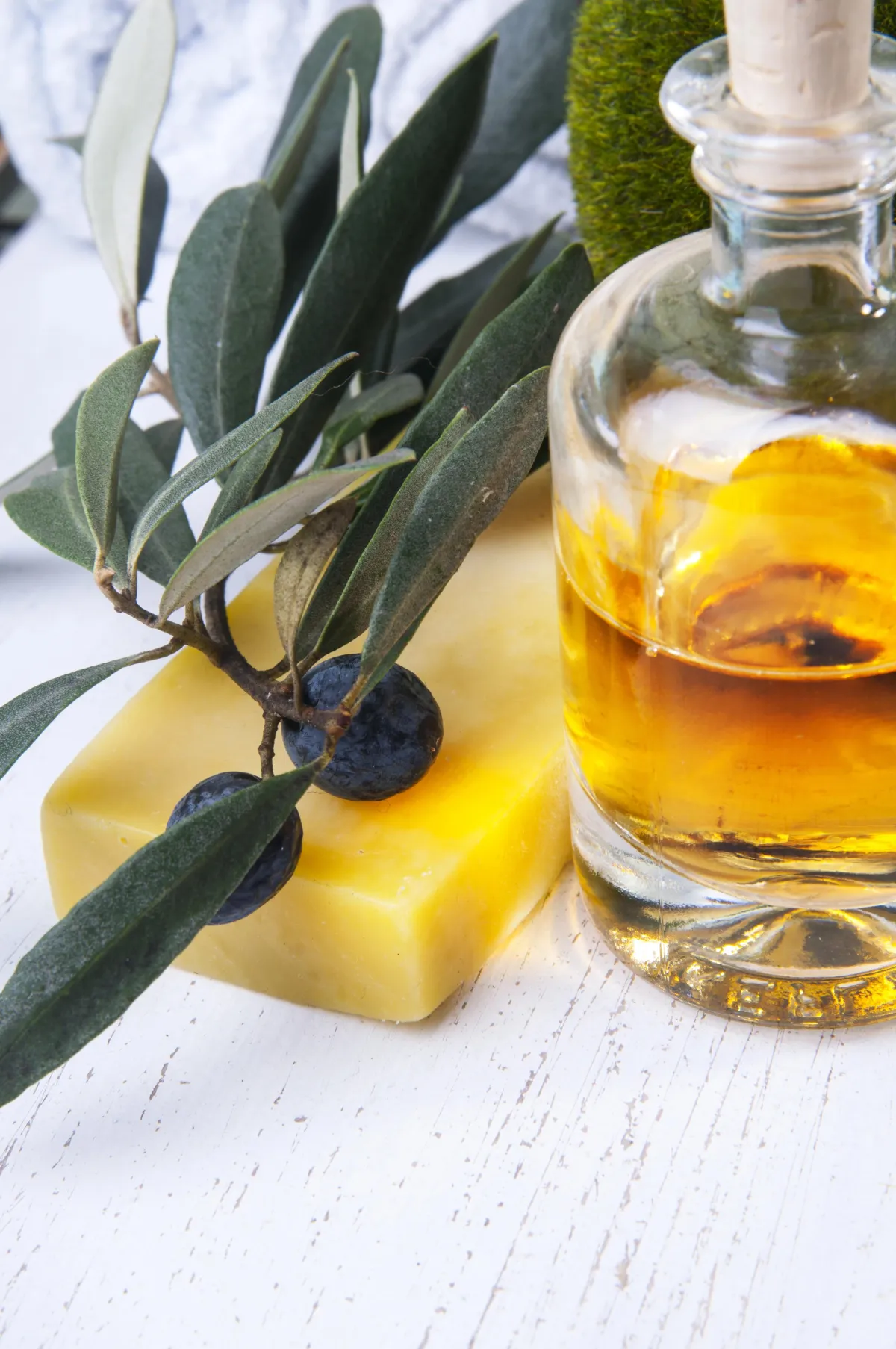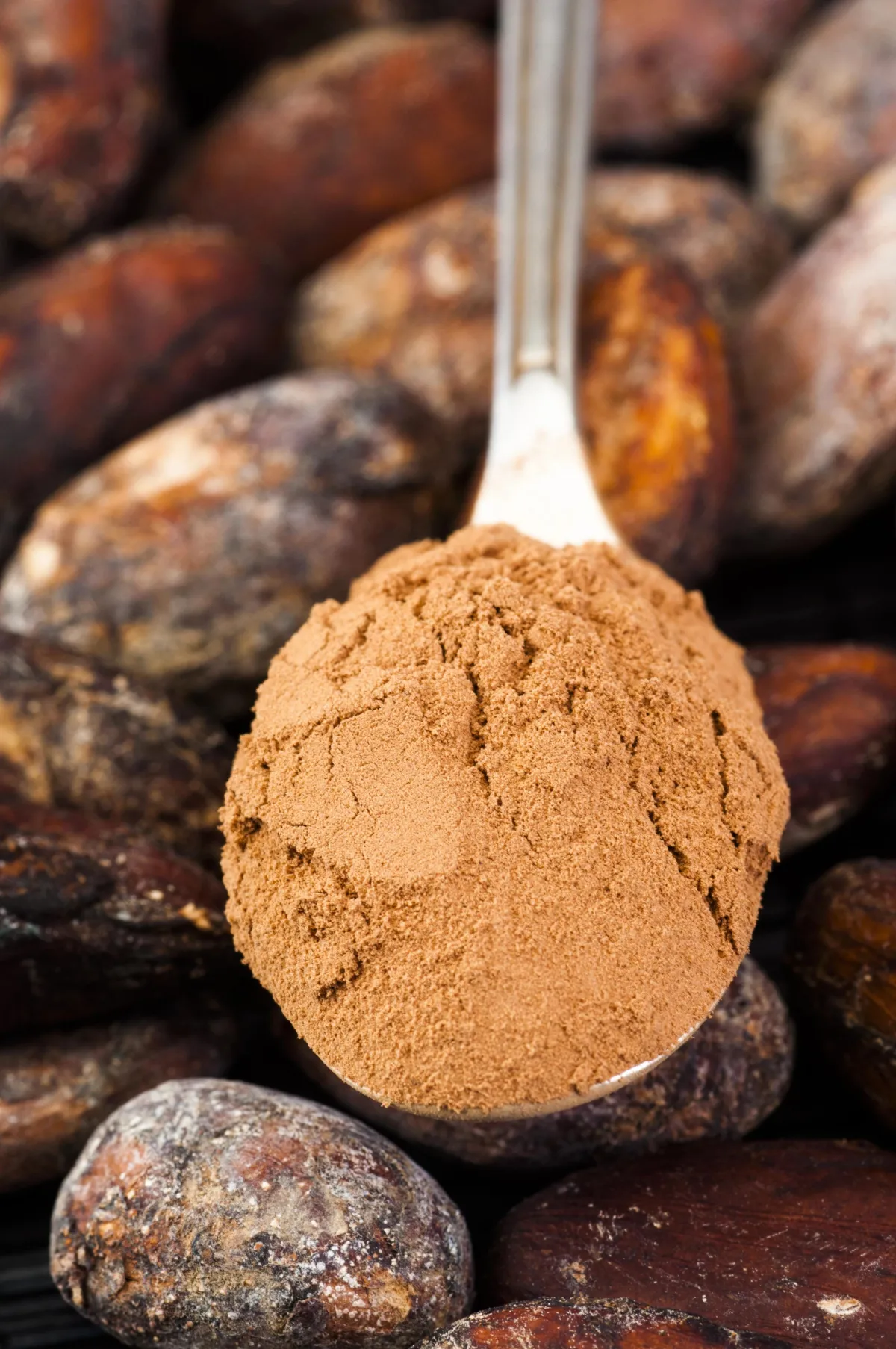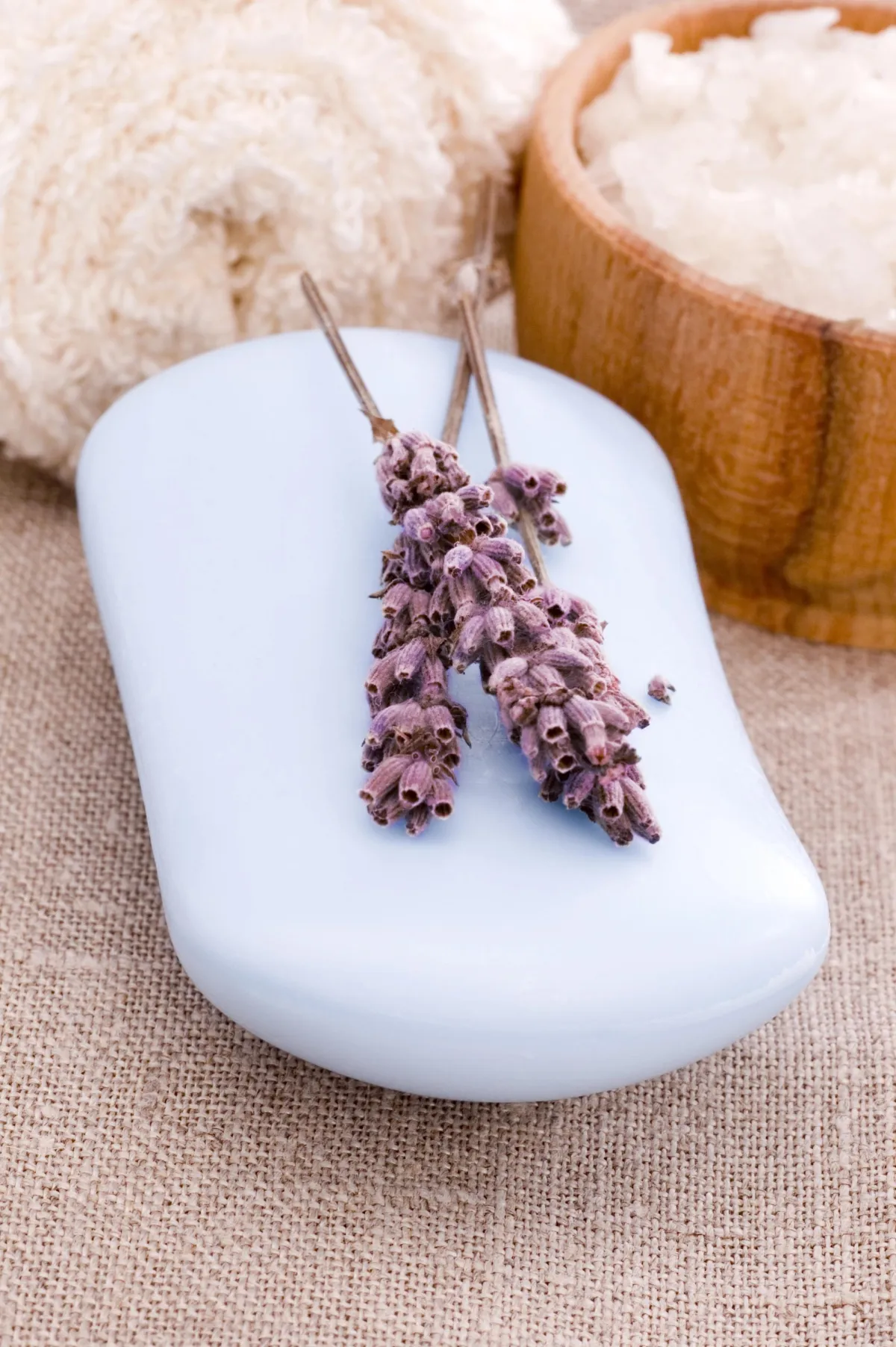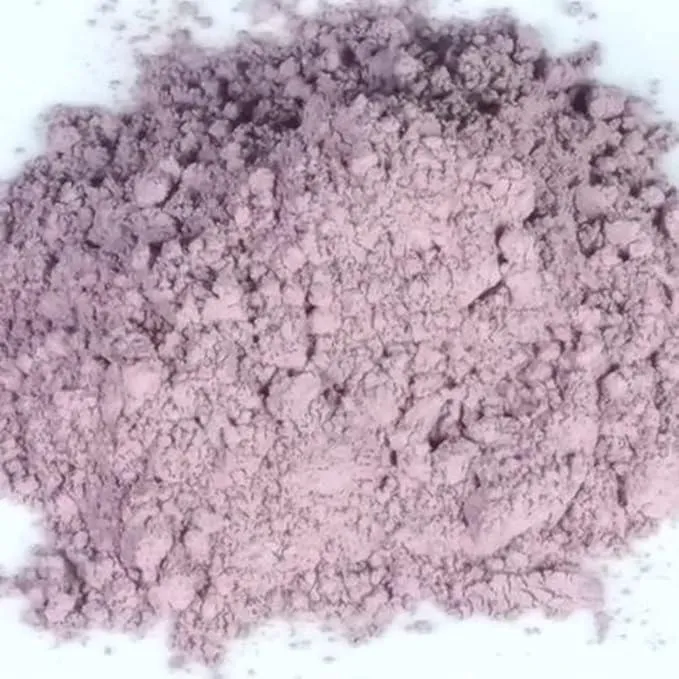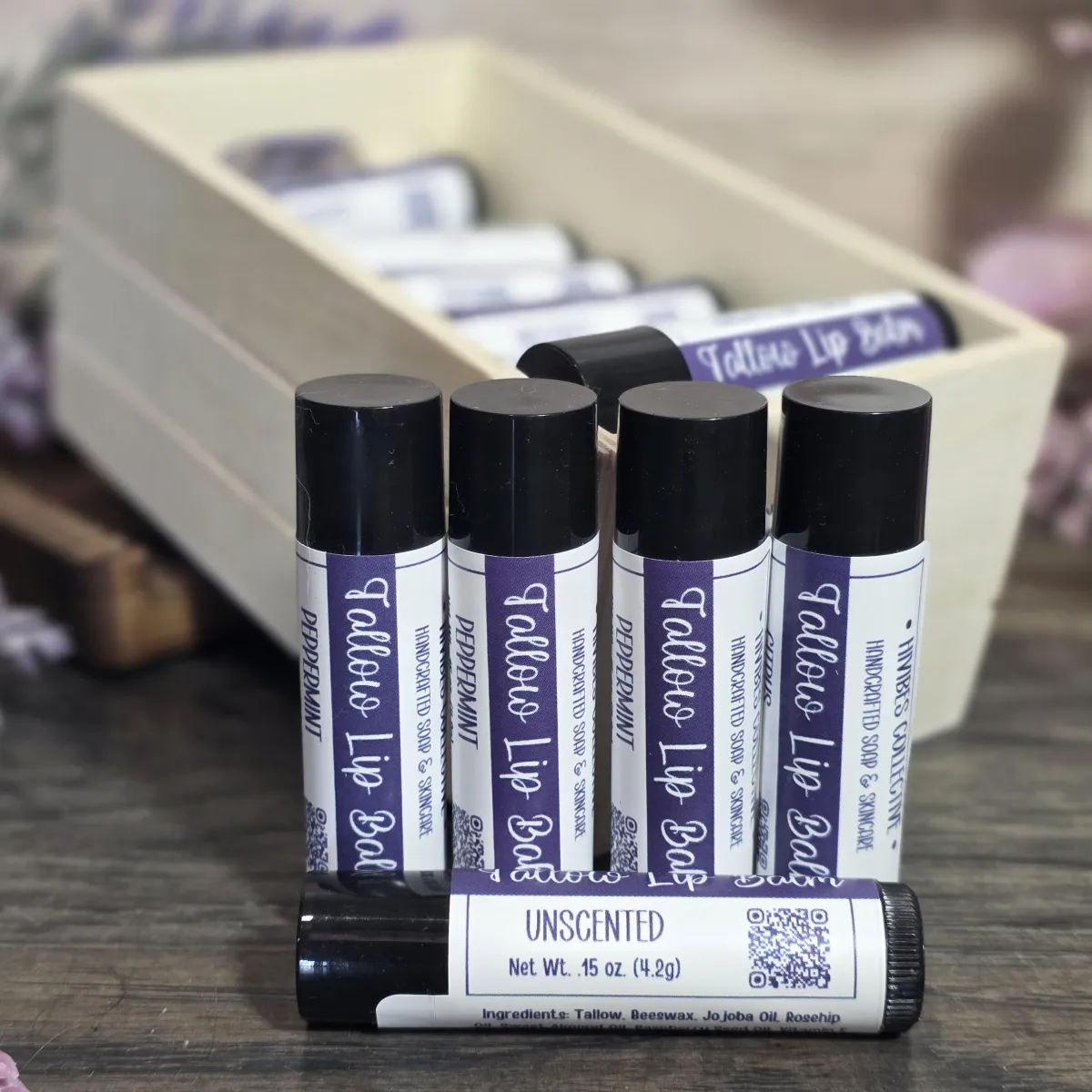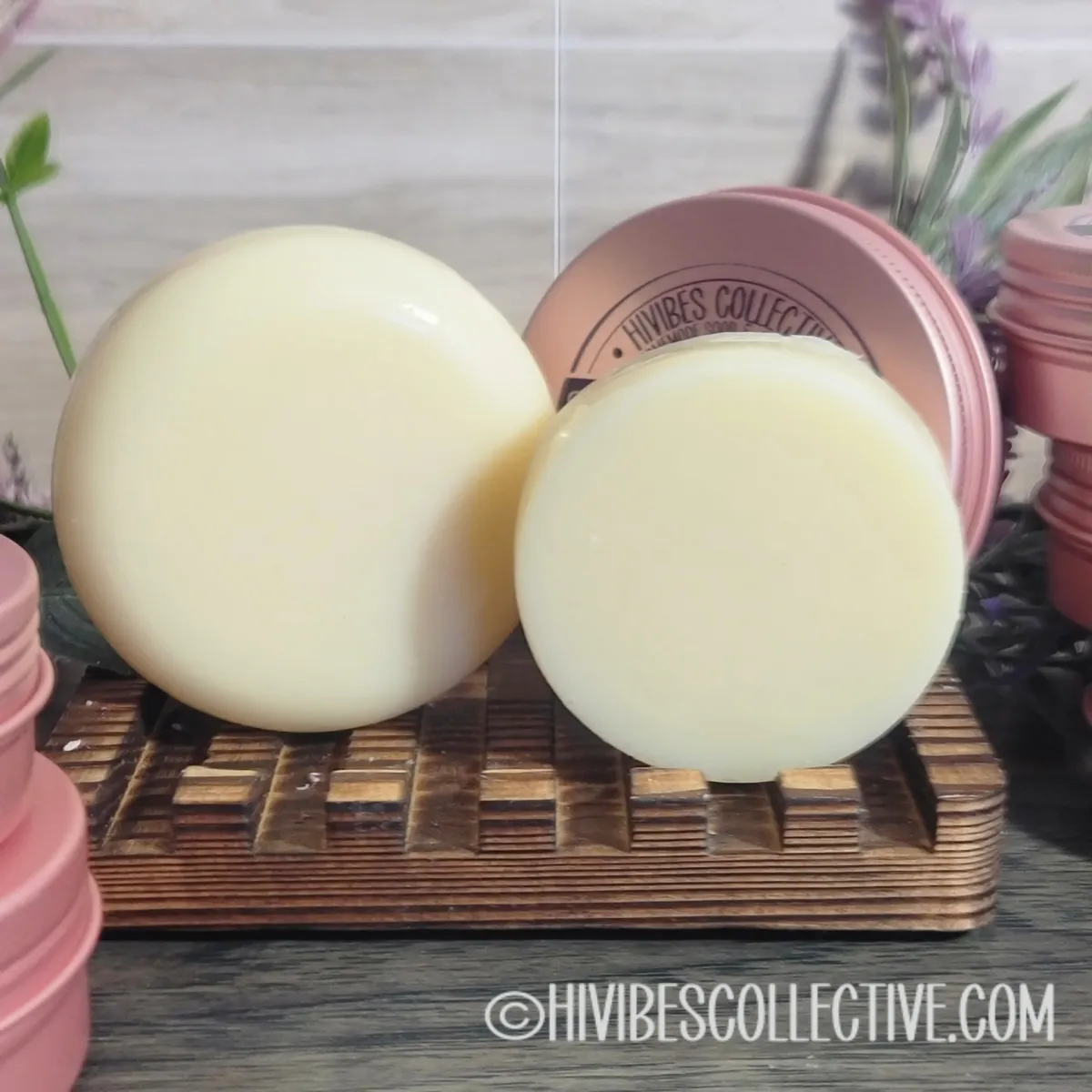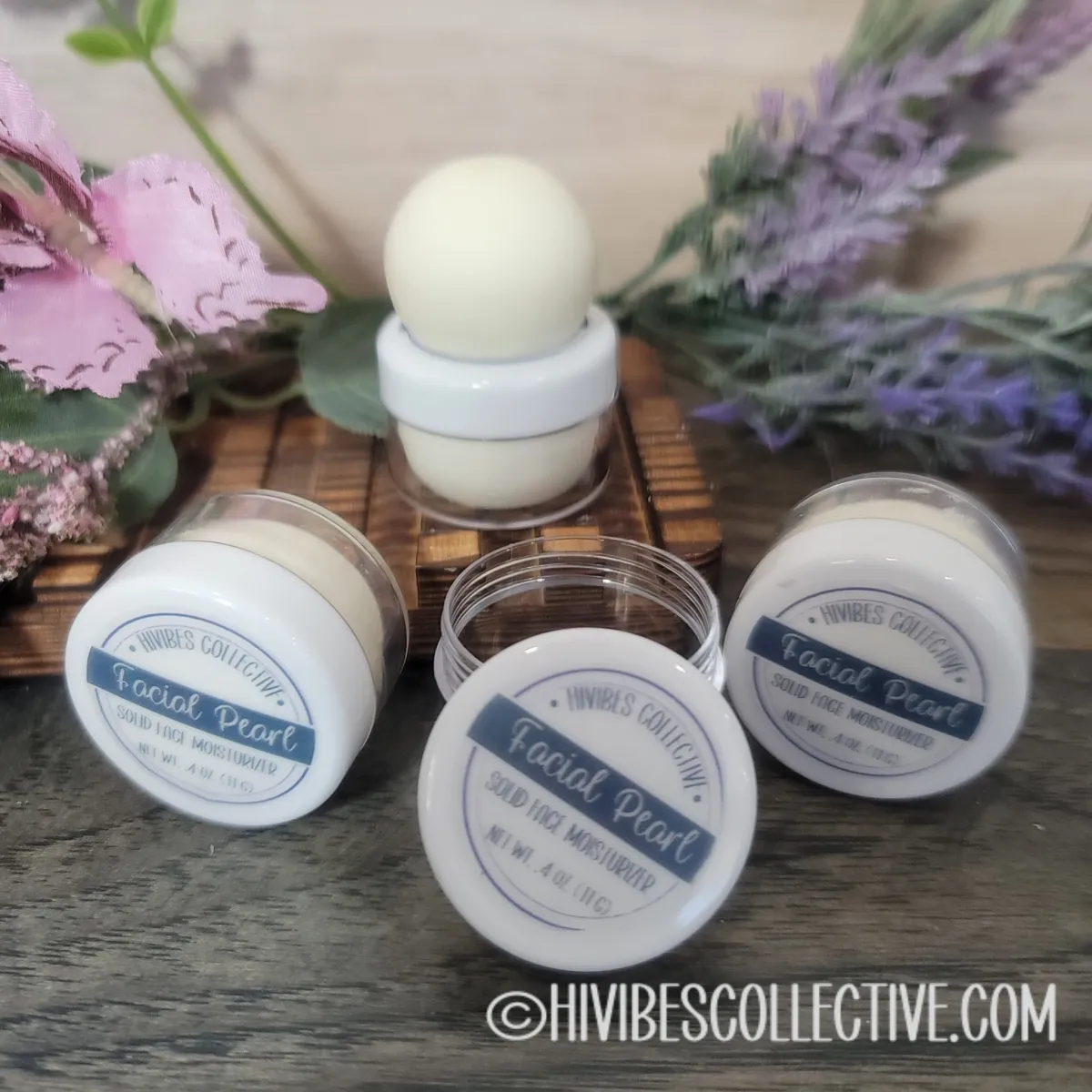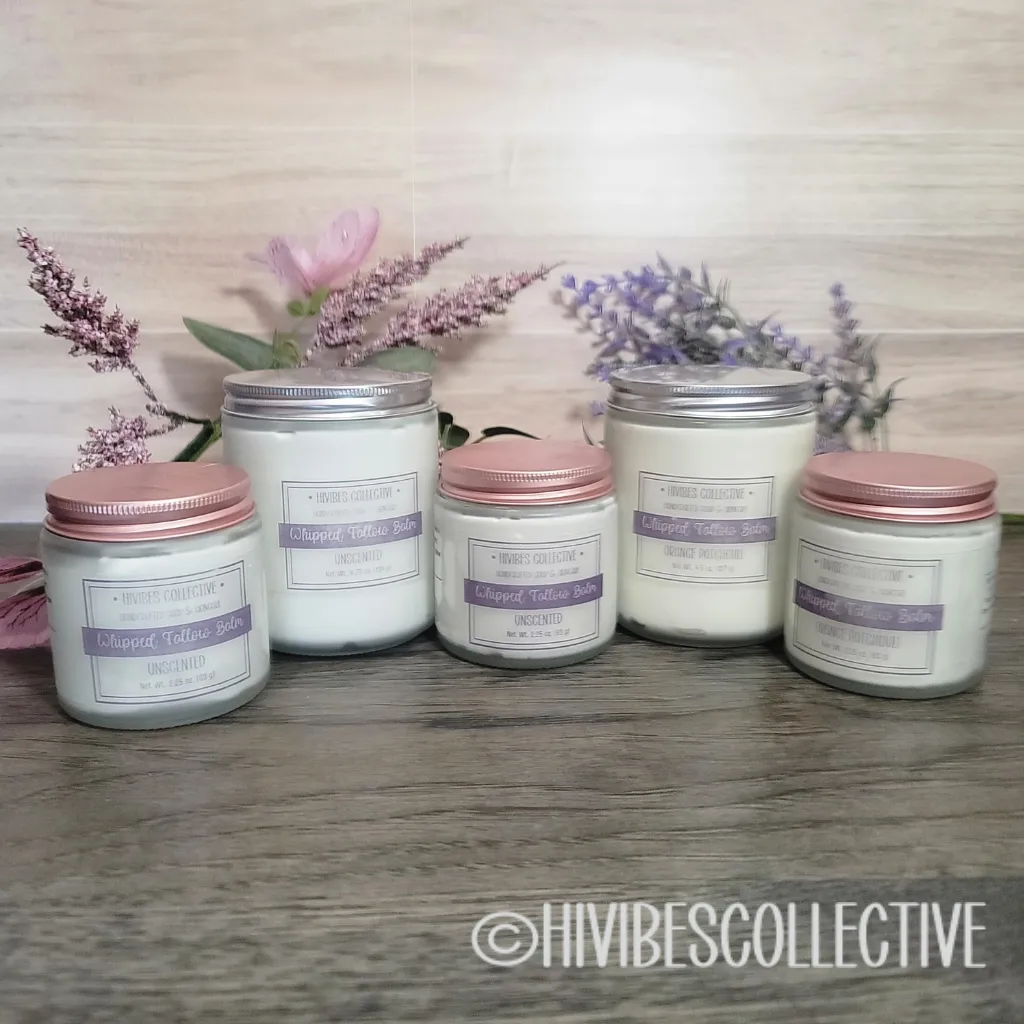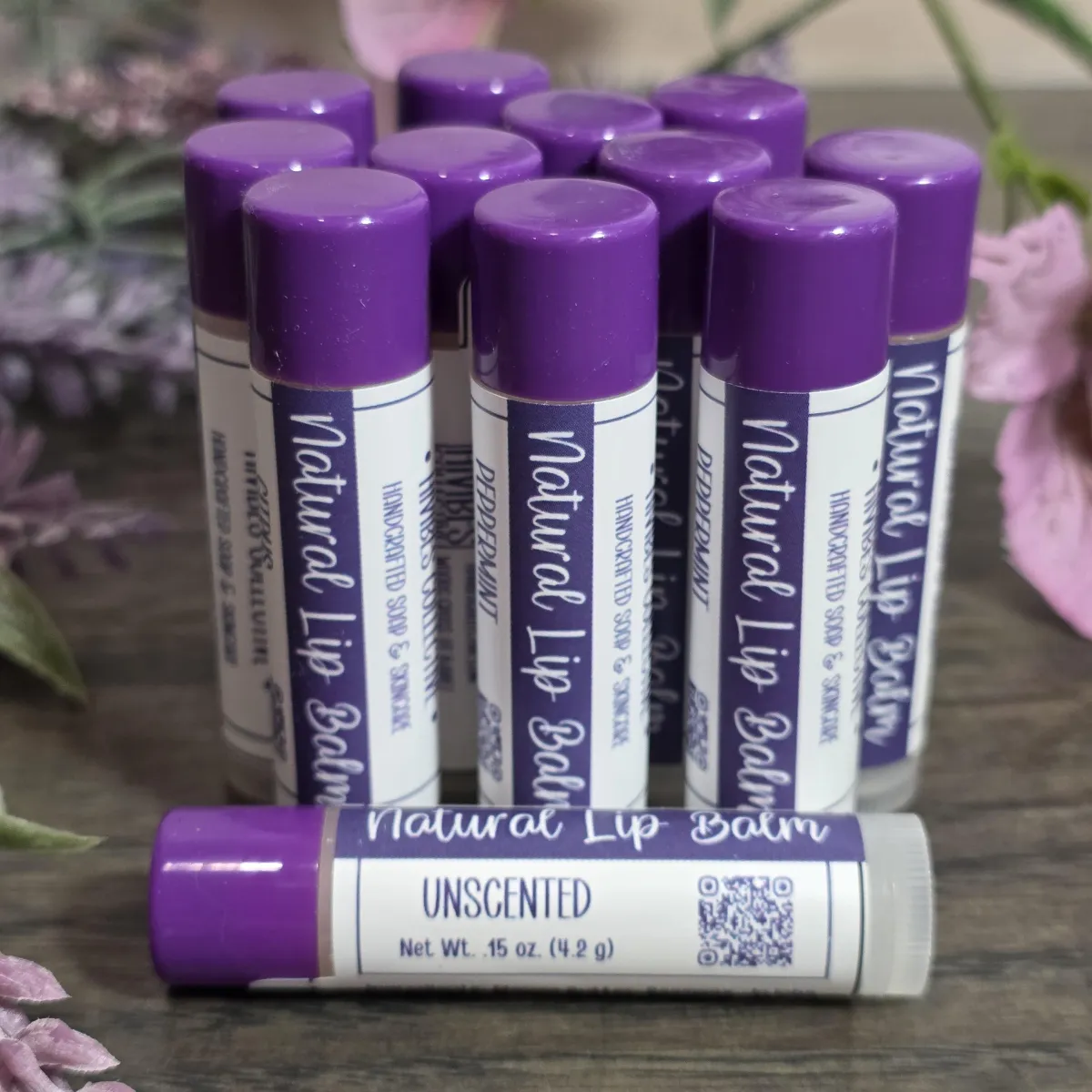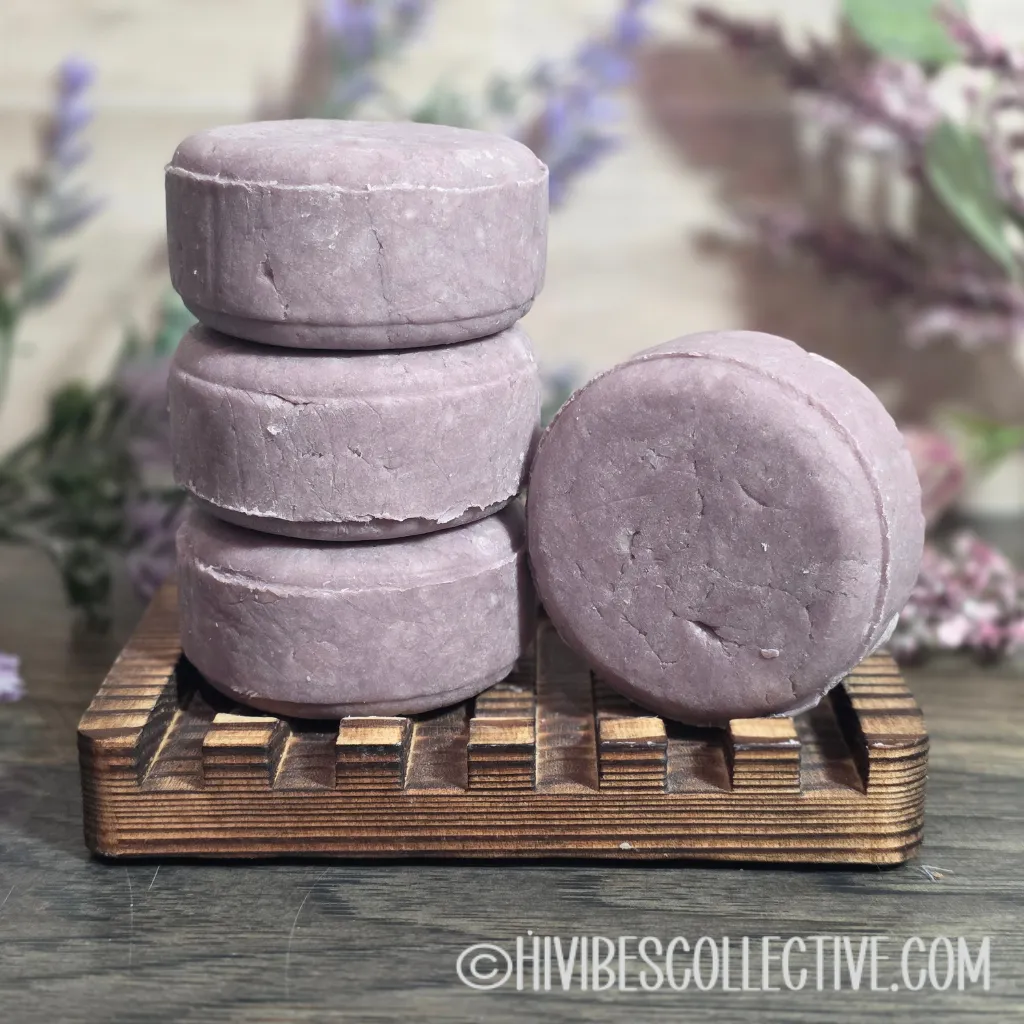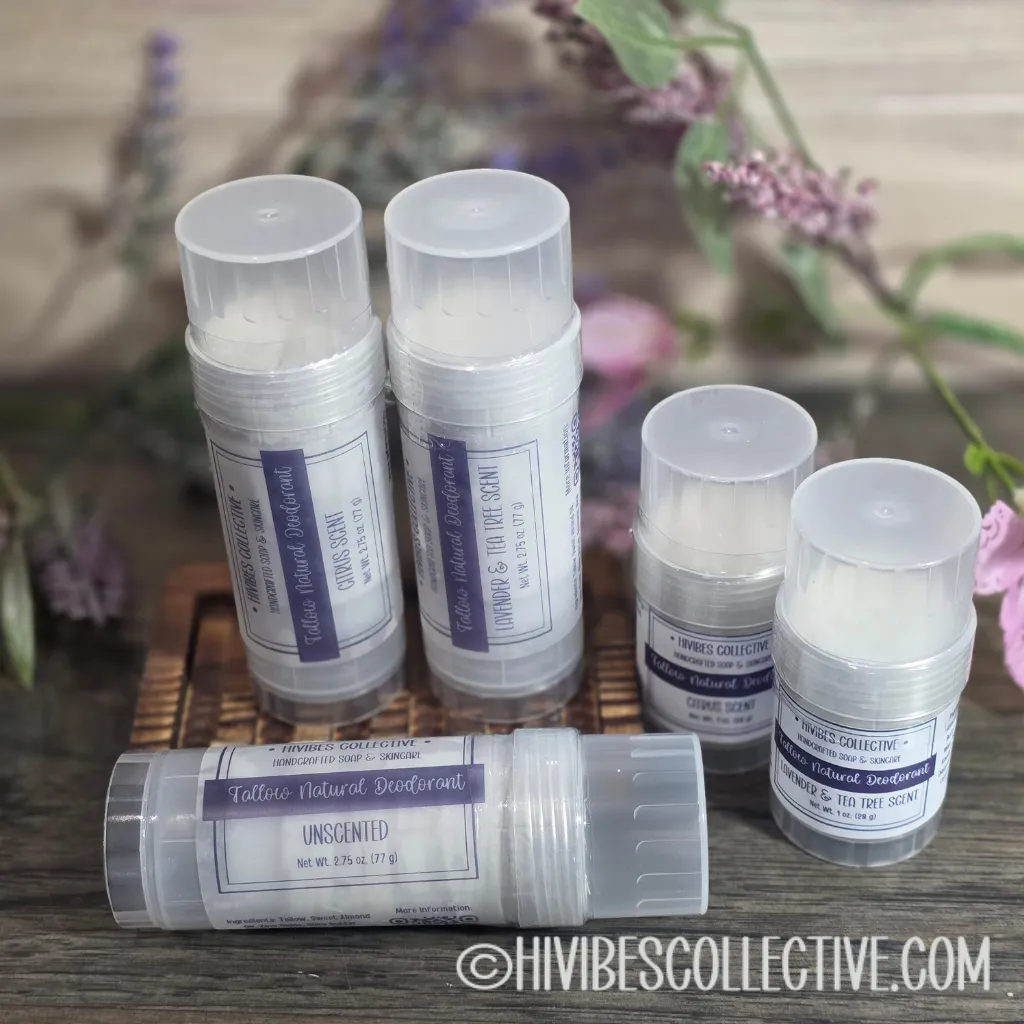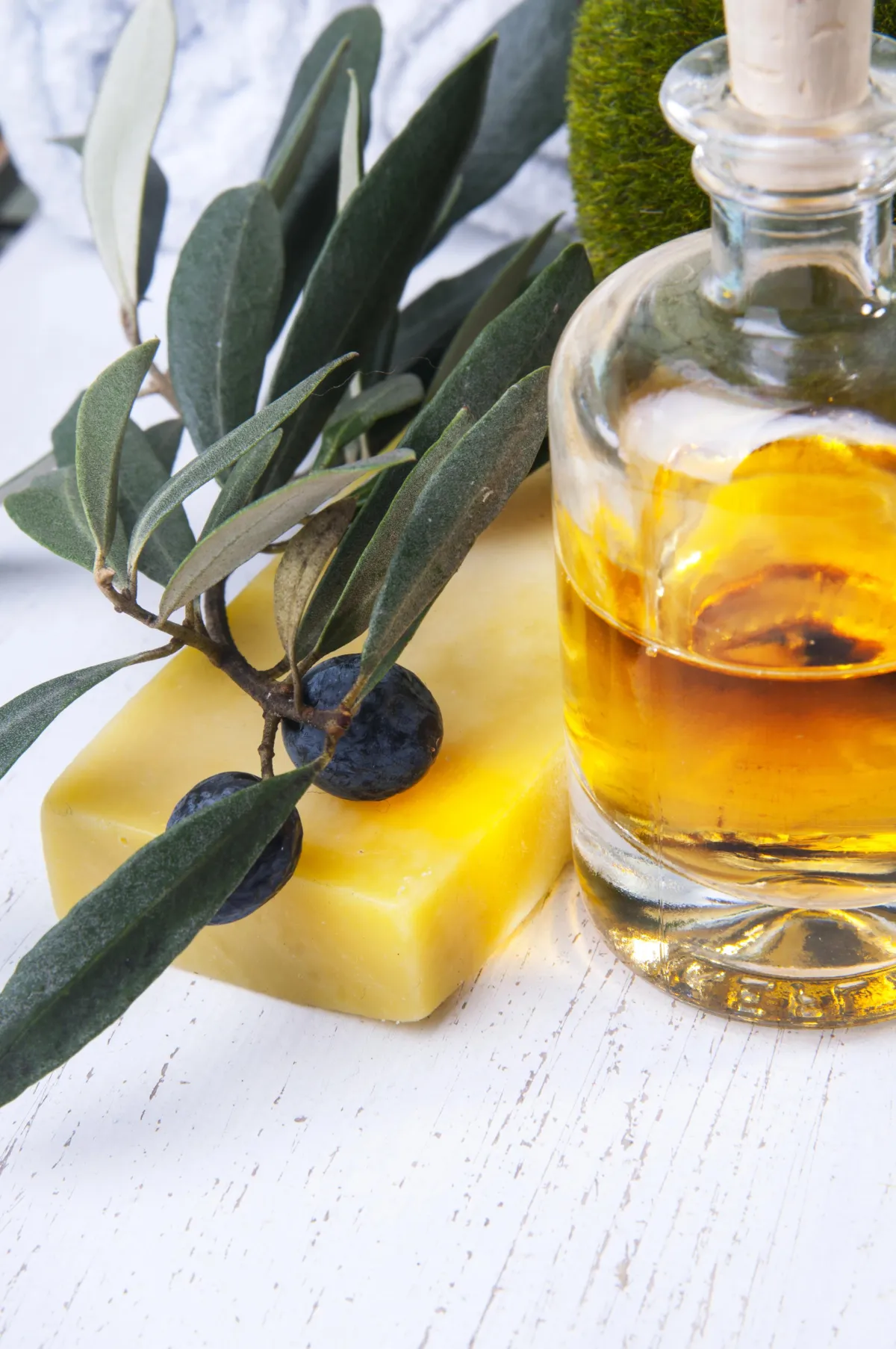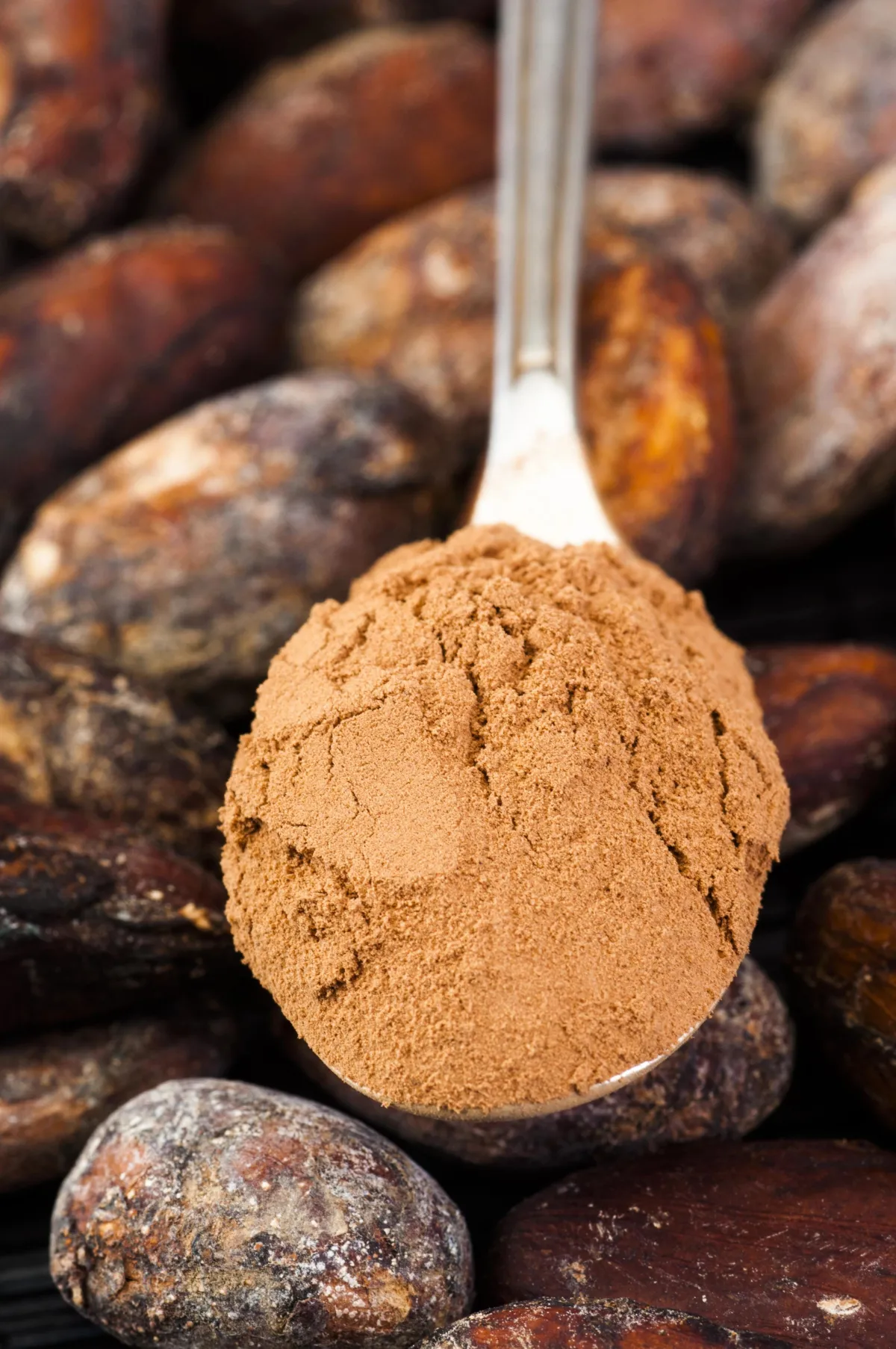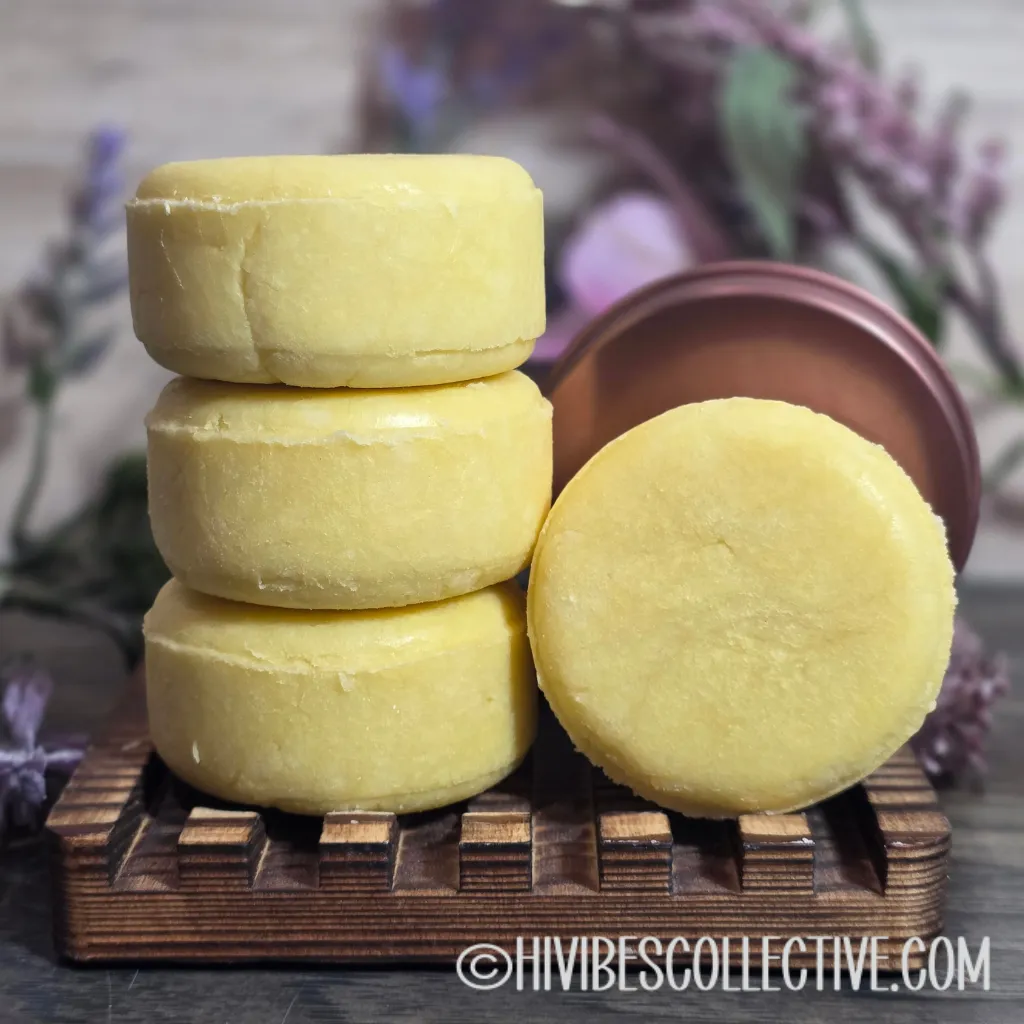Scents - Essential Oils & Plant-Based Fragrance Oils
We believe scent is more than just fragrance—it’s an experience. That’s why our artisan soaps and skincare are scented only with pure essential oils, carefully chosen not just for their beautiful aromas but for the way they enhance your daily routine. From the calming notes of lavender to the bright, uplifting scent of citrus, these nature-derived oils bring a little luxury to every use.
Our signature soaps may also feature natural fragrance oils, which are made from plant-based components to create unique, long-lasting scents while still keeping things as close to nature as possible. While we can’t make specific claims about essential oils due to labeling guidelines, we encourage you to explore their traditional uses and discover the scents that speak to you—whether you love something fresh and invigorating, warm and grounding, or soft and soothing.
Lavender Essential Oil
Lavender Essential Oil: The Ultimate Calming Classic
Lavender essential oil (Lavandula angustifolia) is the ultimate multitasker—soothing, balancing, and beautifully aromatic. Used for centuries in herbal medicine, perfumery, and skincare, lavender has long been associated with relaxation and healing. The ancient Egyptians, Greeks, and Romans all prized lavender for its cleansing and calming properties, and today, it remains one of the most beloved essential oils in the world. Steam-distilled from the delicate purple blossoms of the lavender plant, this oil is packed with benefits for the skin, mind, and body.
In soapmaking, lavender essential oil brings a soft, floral scent that is both relaxing and refreshing. It’s a wonderful addition to bars intended for sensitive skin, as lavender is naturally soothing and anti-inflammatory. It also has mild antibacterial and antifungal properties, making it a great choice for cleansing soaps and skincare formulations.
For skincare, lavender essential oil is a gentle yet powerful ally. It helps calm redness, soothe irritation, and support the skin’s natural healing process, making it especially beneficial for dry, sensitive, or acne-prone skin. Its antioxidant properties help protect against environmental stressors, while its ability to promote relaxation makes it a favorite for bedtime skincare routines. With a non-comedogenic rating of 0, it won’t clog pores and is generally well-tolerated by most skin types.
Best Uses: Relaxing bath soaps and body washes; soothing face and body creams; scalp and hair treatments for balancing oil production; aromatherapy for stress relief and sleep support.
Cautions: Lavender essential oil is generally safe for most people, but those with very sensitive skin should do a patch test first. It should always be diluted before applying directly to the skin. While rare, some individuals may have allergic reactions to lavender. Additionally, some studies suggest that excessive use in young boys may have mild hormonal effects, so moderation is advised.

Spearmint Essential Oil
Spearmint Essential Oil: The Sweet & Refreshing Energizer
Spearmint essential oil (Mentha spicata) is like a breath of fresh air—uplifting, cooling, and invigorating. With its sweet, minty aroma and gentle nature, spearmint has been used for centuries in herbal medicine, from ancient Greece to traditional Chinese and Ayurvedic healing practices. Unlike its bolder cousin, peppermint, spearmint contains less menthol, making it milder and more suitable for sensitive skin while still providing that refreshing tingle. Steam-distilled from the bright green leaves of the spearmint plant, this essential oil is a must-have for both skincare and aromatherapy.
In soapmaking, spearmint essential oil brings a fresh, minty scent that feels crisp and revitalizing. It pairs beautifully with citrus, lavender, or even earthy notes like rosemary and eucalyptus. In addition to its aromatic appeal, spearmint has natural antibacterial and antifungal properties, making it a great addition to cleansing and purifying soaps. The mild cooling effect makes it especially wonderful in summertime bars and body washes.
For skincare, spearmint essential oil is known for its refreshing and clarifying effects. It helps balance oily skin, reduce redness, and soothe irritation, making it a great choice for acne-prone or congested skin. Its gentle astringent properties help tone the skin without causing dryness. With a non-comedogenic rating of 1, it is generally safe for most skin types when properly diluted. It’s also a popular choice in scalp treatments to help with dandruff and excess oil production.
Best Uses: Energizing soaps, body washes, and scrubs; facial toners and serums for oily or acne-prone skin; scalp treatments for refreshing and balancing; aromatherapy blends for focus, clarity, and stress relief.
Cautions: Spearmint essential oil is gentler than peppermint but should still be diluted before applying to the skin. While it is generally safe for most people, those with sensitive skin should do a patch test first. Pregnant women and young children should use it with caution, as mint oils can be potent. Avoid contact with the eyes and mucous membranes.
Frankincense Essential Oil
Frankincense Essential Oil: The Ancient Elixir of Renewal
Frankincense essential oil (Boswellia serrata or Boswellia carterii) is a time-honored treasure, revered for its grounding aroma and powerful skin-rejuvenating properties. Used for over 5,000 years in sacred rituals, traditional medicine, and skincare, frankincense was prized by ancient Egyptians, Babylonians, and even biblical figures as a gift fit for kings. Steam-distilled from the resin of the Boswellia tree, this oil is deeply soothing, making it a favorite for mature skin, meditation, and relaxation.
In soapmaking, frankincense essential oil adds a rich, resinous scent with warm, woody, and slightly citrusy undertones. Beyond its fragrance, it has natural antimicrobial and astringent properties, making it a fantastic addition to cleansing soaps. It also helps support skin elasticity and tone, giving soap a luxurious, skin-loving boost.
For skincare, frankincense essential oil is a powerhouse for renewal and healing. It helps reduce the appearance of fine lines, scars, and uneven skin tone, making it a favorite in anti-aging formulations. Its soothing nature makes it excellent for dry, irritated, or sensitive skin. With a non-comedogenic rating of 1, it absorbs well and is unlikely to clog pores, making it beneficial for all skin types, including acne-prone skin. Its grounding aroma also makes it popular in facial mists and serums designed for relaxation and stress relief.
Best Uses: Anti-aging facial creams, serums, and balms; soothing and cleansing soaps for all skin types; massage oils and aromatherapy blends for relaxation; meditation and spiritual rituals for grounding and focus.
Cautions: Frankincense essential oil is generally safe for most skin types but should always be diluted before topical application. Those with very sensitive skin should perform a patch test first. While rare, some individuals may experience mild irritation. Pregnant women should consult a healthcare provider before use, as frankincense has been historically associated with hormonal effects.
Patchouli Essential Oil
Patchouli Essential Oil: The Earthy & Exotic Skin Soother
Patchouli essential oil (Pogostemon cablin) is the ultimate grounding scent—deep, musky, and earthy with a touch of sweetness. Loved by ancient civilizations and counterculture movements alike, this rich, resinous oil has been treasured for centuries in perfumery, skincare, and traditional medicine. Originating from Southeast Asia, patchouli leaves are dried and steam-distilled to create this intensely aromatic oil, known for its ability to balance the skin and the mind.
In soapmaking, patchouli essential oil brings a warm, long-lasting fragrance that deepens over time, making it a favorite for those who love rich, grounding scents. It also offers natural antibacterial and antifungal properties, making it a great addition to cleansing soaps. Its ability to help retain moisture makes it especially beneficial in soaps for dry or mature skin.
For skincare, patchouli essential oil is a true multitasker. It’s packed with anti-inflammatory and regenerative properties that help soothe irritation, reduce redness, and support skin healing. It’s a great choice for acne-prone skin, thanks to its antibacterial effects, while also working wonders for dry, aging skin by promoting cell regeneration. With a non-comedogenic rating of 1, it absorbs well without clogging pores. Its grounding, calming scent also makes it a popular choice in aromatherapy, known to help ease stress and promote relaxation.
Best Uses: Moisturizing soaps and body butters for dry or mature skin; facial serums for acne-prone or irritated skin; natural deodorants and earthy-scented perfumes; aromatherapy for relaxation, grounding, and stress relief.
Cautions: Patchouli essential oil is potent, so a little goes a long way! Always dilute before applying to the skin, and do a patch test if you have sensitive skin. While generally safe, its strong scent can be overwhelming if overused. Pregnant women should consult a healthcare provider before use, as patchouli can have mild stimulating effects.
Peppermint Essential Oil
Peppermint Essential Oil: The Cool, Refreshing Invigorator
Peppermint essential oil (Mentha × piperita) is one of the most invigorating and refreshing essential oils, offering an uplifting burst of cool minty goodness. Known for its fresh, crisp aroma and cooling sensation, peppermint has been used for centuries in herbal remedies, food, and beauty treatments. Native to Europe and the Middle East, peppermint is a hybrid of watermint and spearmint, packed with menthol, a compound that provides its signature cooling and soothing effect.
In soapmaking, peppermint essential oil adds a zesty, energizing scent that instantly refreshes the senses. Its natural cooling properties make it a popular choice for invigorating soaps, body washes, and scrubs. Peppermint’s antibacterial and antifungal properties also make it an excellent addition to cleansing soaps that target oily or acne-prone skin. The crisp, minty fragrance lingers beautifully in the bar and offers an eye-opening, refreshing experience every time you use it.
For skincare, peppermint essential oil is a standout for its ability to cool, calm, and clarify the skin. The menthol in peppermint oil helps to temporarily reduce the appearance of redness and swelling, making it ideal for soothing irritation from blemishes, sunburn, or rashes. It also helps balance oil production, making it beneficial for oily or acne-prone skin. With a non-comedogenic rating of 1, it’s unlikely to clog pores, and when used in moderation, it can provide a great natural pick-me-up for your skincare routine. Additionally, its stimulating aroma can help with mental clarity, focus, and even fatigue.
Best Uses: Cooling soaps, body washes, and foot scrubs for a refreshing experience; acne-fighting facial treatments and toners; scalp treatments for invigorating, stimulating hair growth; aromatherapy blends for mental clarity, focus, and energy.
Cautions: Peppermint essential oil is strong and should always be diluted before topical application to avoid irritation. It can be a bit intense for sensitive skin, so a patch test is recommended before full use. Because of its cooling nature, avoid applying peppermint oil to areas with broken or very sensitive skin. Pregnant women, children under 2 years old, and individuals with sensitive skin should use peppermint oil with caution. Also, keep it away from the eyes and mucous membranes, as it can cause irritation.
Cedarwood Essential Oil
Cedarwood Essential Oil: The Grounding, Woody Calm
Cedarwood essential oil (Cedrus atlantica or Juniperus virginiana) is like a deep breath of fresh forest air, offering a rich, warm, and grounding aroma. Revered for its calming and soothing properties, cedarwood has been used for centuries in spiritual ceremonies, traditional medicine, and even as a natural insect repellent. The oil is steam-distilled from the wood of the cedar tree, known for its majestic height and timeless presence. This earthy, woodsy essential oil brings a sense of stability, relaxation, and grounding to your skincare routine.
In soapmaking, cedarwood essential oil adds a deep, woody fragrance that is both calming and earthy. It is often used in masculine-oriented scents but also blends beautifully with floral or citrus oils for a balanced, earthy note in any bar. Cedarwood’s natural antiseptic and antifungal properties make it a perfect addition to cleansing soaps. It helps purify the skin, reducing the appearance of blemishes and supporting a healthy complexion.
For skincare, cedarwood essential oil is excellent for promoting balance and soothing irritation. It’s a fantastic choice for oily, acne-prone, or inflamed skin, as its antibacterial and astringent properties help purify and tighten pores. Cedarwood is also renowned for its ability to reduce the appearance of scars and stretch marks, making it a helpful addition to body oils or lotions for promoting smoother, more even skin. With a non-comedogenic rating of 2, it is considered fairly safe for most skin types, though individuals with sensitive skin should dilute it properly.
Best Uses: Purifying soaps, body washes, and scrubs for oily or acne-prone skin; calming face oils, serums, and balms for irritated skin; relaxing aromatherapy blends for grounding and stress relief; haircare products for soothing the scalp and promoting healthy hair growth.
Cautions: Cedarwood essential oil is generally safe for most people when diluted, but as with all essential oils, it’s important to perform a patch test first, especially for those with sensitive skin. Cedarwood may have a mild sedative effect, so it’s best avoided in the daytime if you need to stay alert. Pregnant women and those with a history of skin irritation should consult a healthcare provider before use. Additionally, while rare, some individuals may experience mild reactions, so always be cautious when using any new oil.
Bergamot Essential Oil
Bergamot Essential Oil: The Bright, Citrus-Infused Comforter
Bergamot essential oil (Citrus bergamia) is a zesty, uplifting oil that brings a perfect balance of fresh citrus and floral sweetness to your skincare routine. Known for its calming, mood-lifting properties, bergamot has been used for centuries in traditional medicine, perfumes, and even as a key ingredient in Earl Grey tea. Extracted from the rind of the small, pear-shaped bergamot orange, this fragrant essential oil has a distinctive, slightly spicy citrus scent that’s both invigorating and comforting.
In soapmaking, bergamot essential oil adds a bright, citrusy fragrance that enhances the freshness of your bars. It blends effortlessly with floral, herbaceous, and even spicy oils like lavender, cedarwood, and rosemary, creating a well-rounded, refreshing scent profile. Bergamot’s natural antibacterial and antifungal properties make it an excellent addition to cleansing soaps, especially for those with oily or acne-prone skin. The oil also helps to balance the skin's natural oils, keeping your complexion fresh without being overly drying.
For skincare, bergamot essential oil shines as a gentle clarifier. Its ability to balance oily skin, fight acne-causing bacteria, and improve skin tone makes it a go-to for anyone looking to refresh and rejuvenate their complexion. Bergamot also has natural mood-enhancing qualities—its uplifting aroma can help reduce stress, anxiety, and even elevate your overall sense of well-being. With a non-comedogenic rating of 2, it’s safe for most skin types, but should always be diluted properly to avoid irritation.
Best Uses: Brightening soaps and facial cleansers for oily or acne-prone skin; balancing body lotions, creams, and serums for healthy skin; aromatherapy blends for stress relief, relaxation, and uplifting energy; haircare products to balance oily scalps and enhance hair vitality.
Cautions: Bergamot essential oil can increase skin sensitivity to the sun, so avoid sun exposure or tanning beds for 12 hours after applying products containing bergamot, especially if using it on the skin. It’s important to dilute bergamot essential oil properly before topical use. As with any essential oil, a patch test is recommended, particularly for those with sensitive skin. Pregnant women and individuals with certain health conditions should consult a healthcare provider before use.
Rose Geranium Essential OIl
Rose Geranium Essential Oil: The Floral & Balancing Elixir
Rose Geranium Essential Oil is a delightfully rosy, slightly citrusy, and herbaceous scent that offers a soothing and balancing effect on both the skin and emotions. Steam-distilled from the leaves and flowers of the Pelargonium graveolens var. roseum plant, this oil is a luxurious staple in skincare, aromatherapy, and perfumery. Known for its hydrating, toning, and mood-lifting properties, it’s a wonderful addition to natural beauty formulations.
In skincare, Rose Geranium Essential Oil is deeply nourishing and balancing, making it perfect for both dry and oily skin types. It helps to reduce redness, calm irritation, and even out skin tone, making it a fantastic choice for facial serums, lotions, and soaps. Its mild astringent properties can also help tighten the skin and promote a firmer, more youthful complexion. In haircare, Rose Geranium can revitalize the scalp, balance oil production, and add a soft floral scent. It is often used in conditioning treatments and scalp-balancing shampoos to help with dryness, oiliness, or itchiness.
Best Uses: Soap & Skincare: Hydrates and balances skin, reduces redness, and promotes a glowing complexion. Shampoo & Haircare: Supports a healthy scalp, enhances shine, and leaves hair smelling fresh and floral. Aromatherapy & Mood Boosting: Known for its uplifting and stress-relieving effects, making it a great choice for relaxation and emotional balance. Perfumery & Body Care: A beautiful middle note in natural perfumes, body oils, and massage blends.
Eucalyptus Essential OIl
Eucalyptus Essential Oil: The Cool & Invigorating Cleanser
Eucalyptus Essential Oil is crisp, fresh, and camphorous, with an instantly revitalizing and clearing aroma. Steam-distilled from the leaves of the Eucalyptus tree, native to Australia, this powerful essential oil has been used for centuries in traditional medicine, skincare, and aromatherapy. It is well known for its cleansing, soothing, and respiratory-supporting properties, making it a favorite in both skincare and wellness routines.
In skincare, Eucalyptus Essential Oil is prized for its antibacterial and purifying properties, helping to clarify acne-prone skin, reduce excess oil, and refresh the complexion. Its natural cooling effect makes it a great addition to muscle rubs and after-sun lotions, offering a soothing sensation to tired or overheated skin. In haircare, Eucalyptus is often used in clarifying shampoos and scalp treatments to help reduce dandruff, refresh the scalp, and promote healthy hair growth. Its invigorating scent adds a fresh, clean aroma to hair products.
Geranium Essential OIl
Geranium Essential Oil: The Floral & Balancing Beauty
Geranium Essential Oil is a sweet, rosy, and slightly herbaceous aroma that is both uplifting and grounding. Steam-distilled from the leaves and flowers of the Pelargonium graveolens plant, this versatile oil has been used for centuries in skincare, perfumery, and herbal medicine. Known for its balancing, soothing, and skin-rejuvenating properties, Geranium is a favorite in natural beauty formulations.
In skincare, Geranium Essential Oil is famous for its ability to balance oil production, making it beneficial for both dry and oily skin types. It helps to tone the skin, reduce redness, and promote a clear, glowing complexion. Thanks to its antimicrobial and anti-inflammatory properties, it’s also a wonderful addition to soaps, facial serums, and lotions for acne-prone or sensitive skin. In haircare, Geranium can nourish the scalp, promote healthier hair growth, and add a soft floral fragrance. It’s often found in conditioning treatments and scalp-balancing shampoos to help with dryness or excess oil production.
Ylang Ylang Essential Oil
Ylang Ylang Essential Oil: The Exotic & Euphoric Floral
Ylang Ylang Essential Oil is a sweet, floral, and slightly spicy aroma that evokes feelings of joy, relaxation, and sensuality. Steam-distilled from the delicate yellow flowers of the Cananga tree, native to tropical regions like Madagascar, Indonesia, and the Philippines, this luxurious oil has been used for centuries in perfumery, skincare, and traditional wellness practices. Known for its balancing, hydrating, and mood-enhancing properties, Ylang Ylang is a true treasure in natural beauty and aromatherapy.
In skincare, Ylang Ylang Essential Oil is prized for its sebum-balancing effects, making it an excellent choice for both dry and oily skin types. It hydrates, soothes irritation, and promotes a radiant complexion, making it a great addition to moisturizers, facial oils, and body butters. Its natural antimicrobial properties can also help support clearer skin. In haircare, Ylang Ylang adds a luxurious floral scent while helping to nourish the scalp, reduce dryness, and add shine to dull hair. Traditionally, it has been used to promote strong, healthy hair growth and is often found in deep-conditioning treatments and scalp massages.
Sandalwood Essential OIl
Sandalwood Essential Oil: The Luxurious & Grounding Elixir
Sandalwood Essential Oil is a rich, warm, and creamy-smooth scent that has been treasured for centuries in skincare, perfumery, and spiritual practices. Distilled from the heartwood of the Sandalwood tree (Santalum species), this oil is known for its deeply soothing, hydrating, and balancing properties. It has been used in Ayurvedic and traditional medicine for its ability to calm the mind, nourish the skin, and promote a sense of tranquility.
In skincare, Sandalwood Essential Oil is a powerhouse for dry, sensitive, and mature skin. It helps to deeply moisturize, reduce redness, and promote a smooth, even complexion. Thanks to its anti-inflammatory and antimicrobial properties, it’s also a great choice for acne-prone or irritated skin, helping to calm breakouts without stripping moisture. In haircare, Sandalwood Essential Oil can help soothe the scalp, reduce dandruff, and promote soft, silky hair. Its subtle, woody aroma also adds a touch of luxury and depth to shampoo and conditioner bars.
Sweet Orange Essential Oil
Sweet Orange Essential Oil: The Cheerful & Brightening Elixir
Sweet Orange Essential Oil is like sunshine in a bottle, offering a sweet, citrusy, and slightly tangy aroma that instantly lifts the mood. Cold-pressed from the peels of ripe oranges, this oil has been used for centuries in traditional medicine, skincare, and aromatherapy for its cleansing, uplifting, and skin-rejuvenating properties. It’s a wonderful addition to both soap and skincare products thanks to its gentle yet effective benefits.
In skincare, Sweet Orange Essential Oil is loved for its brightening and toning effects, helping to revive dull skin, promote a radiant complexion, and gently cleanse clogged pores. It’s also rich in antioxidants and vitamin C, making it a fantastic choice for protecting skin from environmental stressors. In haircare, Sweet Orange Essential Oil is often used to balance oily scalps, promote shine, and leave hair smelling fresh and vibrant. It can also provide a soothing effect on an irritated or dry scalp.
Grapefruit Essential Oil
Grapefruit Essential Oil: The Bright & Energizing Detoxifier
Grapefruit Essential Oil is a fresh, citrusy burst of sunshine that brings a feeling of joy, energy, and refreshment. Cold-pressed from the peel of ripe grapefruits, this oil has been prized for centuries for its cleansing, toning, and uplifting properties. It’s a favorite in skincare, haircare, and aromatherapy, offering both a delightful scent and a range of beauty benefits.
In skincare, Grapefruit Essential Oil is known for its astringent and purifying effects, making it perfect for oily, acne-prone, and congested skin. It helps tighten pores, reduce excess oil, and promote a clearer complexion. The natural antioxidants in grapefruit, including vitamin C, help protect the skin from environmental stressors and promote a healthy glow. In haircare, Grapefruit Essential Oil is often used in clarifying shampoos to remove buildup, balance oil production, and leave hair feeling refreshed. Its invigorating scent makes it a favorite for morning showers or post-workout hair rinses.
Lemon Essential Oil
Lemon Essential Oil: The Zesty & Uplifting Cleanser
Lemon Essential Oil is a bright, citrusy burst of freshness that brings a sense of energy, clarity, and cleanliness to any formulation. Cold-pressed from the rinds of fresh lemons, this oil has been cherished for centuries for its purifying, antiseptic, and mood-boosting properties. Used in everything from natural skincare and haircare to household cleaning, Lemon Essential Oil is a true multi-tasker.
In skincare, Lemon Essential Oil is known for its astringent and clarifying effects, making it great for oily and acne-prone skin. It helps tone the skin, minimize pores, and reduce excess oil while also offering gentle exfoliation due to its natural citric acid content. Its antimicrobial properties make it a popular addition to cleansing bars, face washes, and toners. In haircare, Lemon Essential Oil can refresh the scalp, balance oil production, and add shine to dull hair. It’s often found in clarifying shampoos that help remove buildup and leave hair feeling light and refreshed.
Lemongrass Essential OIl
Lemongrass Essential Oil: The Fresh & Invigorating Purifier
Lemongrass Essential Oil is a bright, citrusy powerhouse with a crisp, herbaceous aroma that instantly refreshes the senses. Steam-distilled from the tall, fragrant lemongrass plant, this oil has been used in traditional medicine and skincare for centuries—from ancient Ayurvedic practices to modern holistic formulations. Known for its purifying, deodorizing, and toning properties, Lemongrass Essential Oil is a must-have in natural skincare and haircare.
In skincare, Lemongrass is loved for its astringent and antimicrobial effects, making it ideal for oily and acne-prone skin. It helps to cleanse pores, tone the skin, and reduce excess oil production. In soaps and body products, it provides a naturally fresh, uplifting scent while also acting as a mild natural deodorizer. In haircare, Lemongrass Essential Oil can help soothe the scalp, reduce excess oil, and give hair a refreshing boost. It’s often found in clarifying shampoos and scalp treatments to promote a healthy, balanced scalp environment.
Cedarwood Essential Oil
Cedarwood Essential Oil: The Warm, Grounding Protector
Cedarwood Essential Oil brings a rich, woody, and slightly sweet aroma that evokes the serenity of a deep forest. Extracted from the bark of cedar trees, this oil has been used for centuries in ancient civilizations for its preserving, grounding, and purifying properties. It’s often associated with strength, balance, and relaxation, making it a favorite in both skincare and aromatherapy.
In skincare and haircare, Cedarwood Essential Oil is prized for its cleansing, soothing, and balancing effects. It’s particularly beneficial for oily and acne-prone skin, as it helps regulate sebum production and has natural astringent properties. In haircare, it’s known to support scalp health, making it a great choice for those struggling with dry scalp, dandruff, or hair thinning.
Clary Sage Essential OIl
Clary Sage Essential Oil: The Calming & Balancing Herb
Clary Sage Essential Oil has a soft, herbaceous, slightly floral aroma that is deeply relaxing and grounding. Steam-distilled from the leaves and flowering tops of the Salvia sclarea plant, this oil has been used for centuries in herbal medicine, perfumery, and skincare. It is best known for its hormone-balancing, soothing, and skin-conditioning properties, making it a valuable ingredient in both skincare and aromatherapy.
In skincare, Clary Sage is excellent for balancing oil production, reducing redness, and promoting a smooth complexion. Its antimicrobial and anti-inflammatory properties make it helpful for acne-prone and irritated skin. It also contains natural antioxidants that support skin renewal and help fight signs of aging. In haircare, Clary Sage is often used to stimulate the scalp, encourage healthy hair growth, and reduce dandruff. It’s especially beneficial for oily scalps, helping to regulate sebum without over-drying.
Black Pepper Essential Oil
Black Pepper Essential Oil: The Warm & Stimulating Spice
Black Pepper Essential Oil is spicy, warm, and slightly woody, with a natural energizing and stimulating effect. Steam-distilled from the dried peppercorns of the Piper nigrum plant, this oil has been used since ancient times for circulation, muscle relief, and emotional balance.
In skincare, Black Pepper Essential Oil helps increase circulation, warm the skin, and provide antioxidant support. It is often used in massage blends and warming balms to help relieve tension, reduce muscle stiffness, and promote relaxation.
In haircare, Black Pepper can help stimulate the scalp and encourage hair growth by improving blood flow to the hair follicles.
Rosemary Essential Oil
Rosemary Essential Oil: The Fresh & Invigorating Tonic
Rosemary Essential Oil is herbaceous, slightly camphorous, and incredibly refreshing. Steam-distilled from the leaves of the Rosmarinus officinalis plant, this essential oil has been used since ancient times for mental clarity, scalp health, and skin toning.
In skincare, Rosemary Essential Oil is excellent for toning the skin, reducing excess oil, and promoting a clearer complexion. It has natural antibacterial and astringent properties, making it great for acne-prone skin.
In haircare, Rosemary is famous for its ability to stimulate hair follicles, encourage hair growth, and reduce dandruff. It is often found in scalp treatments and strengthening shampoos.
Tea Tree Essential Oil
Tea Tree Essential Oil: The Purifying & Protective Powerhouse
Tea Tree Essential Oil is fresh, medicinal, and slightly earthy, with potent antimicrobial and cleansing properties. Steam-distilled from the leaves of the Melaleuca alternifolia tree, native to Australia, this essential oil has long been used in natural skincare and home remedies.
In skincare, Tea Tree is one of the best essential oils for acne, thanks to its antibacterial, antifungal, and anti-inflammatory properties. It helps to clear breakouts, reduce redness, and purify the skin.
In haircare, Tea Tree Essential Oil helps soothe itchy scalps, combat dandruff, and refresh oily hair. It is a common ingredient in clarifying shampoos and scalp treatments.
Ginger Essential OIl
Ginger Essential Oil: The Warming & Revitalizing Root
Ginger Essential Oil is spicy, warm, and slightly sweet, distilled from the rhizome of the Zingiber officinale plant. It has been used for centuries in herbal medicine, massage therapy, and skincare.
In skincare, Ginger Essential Oil is warming, circulation-boosting, and antioxidant-rich, making it beneficial for dull or sluggish skin.
In haircare, Ginger stimulates the scalp and promotes hair growth, helping to strengthen strands.
Clove Essential Oil
Clove Essential Oil: The Spicy & Powerful Protector
Clove Essential Oil is rich, warm, and intensely spicy, distilled from the buds of the Syzygium aromaticum tree. It is known for its antimicrobial, warming, and stimulating properties.
Cypress Essential OIl
Cypress Essential Oil: The Fresh & Grounding Evergreen
Cypress Essential Oil is woody, fresh, and slightly smoky, with astringent and soothing properties.
HiVibes Collective
Handcrafted tallow soap & skincare using the very best local or authentically sourced ingredients.
Woods Cross, Utah, 84087
©2026 HiVibes Collective

